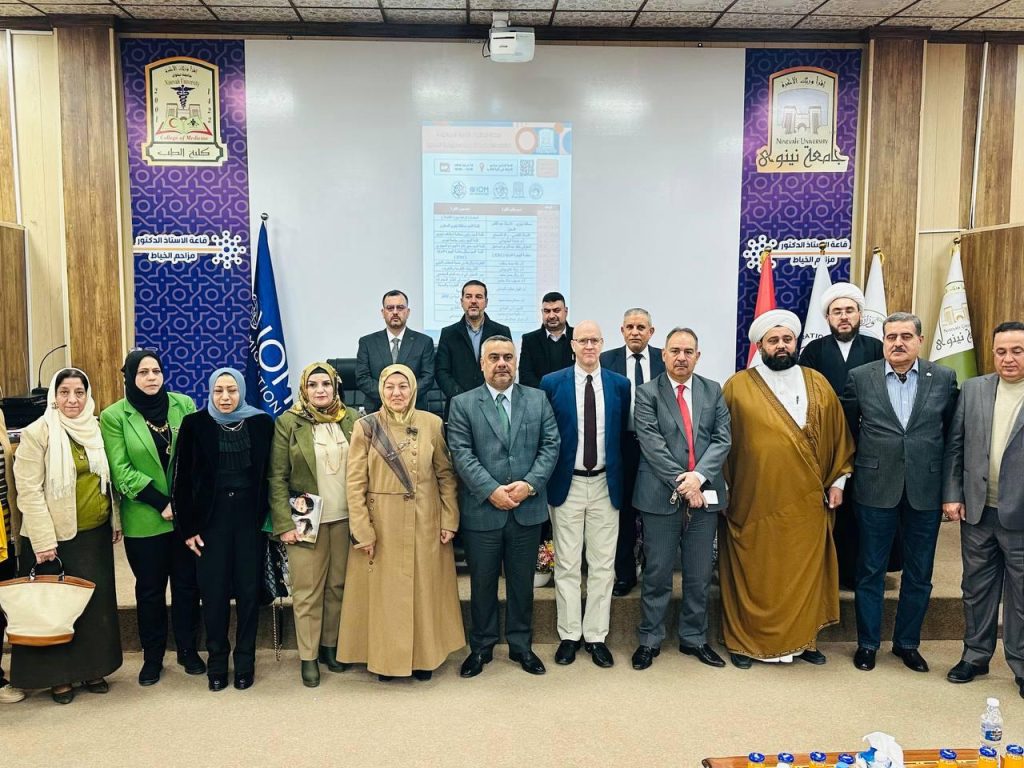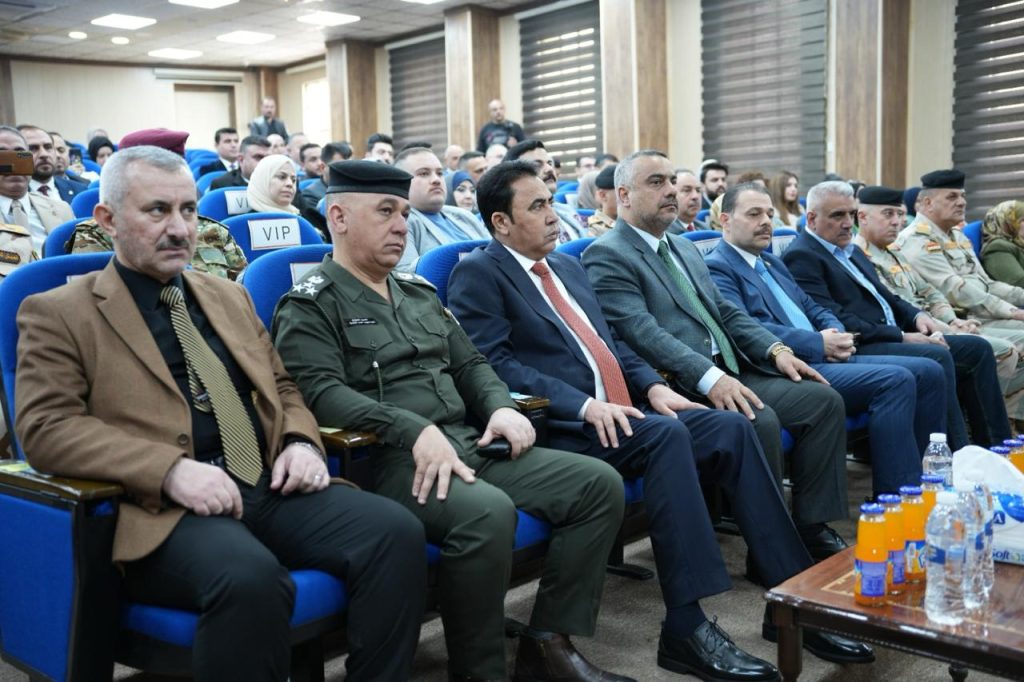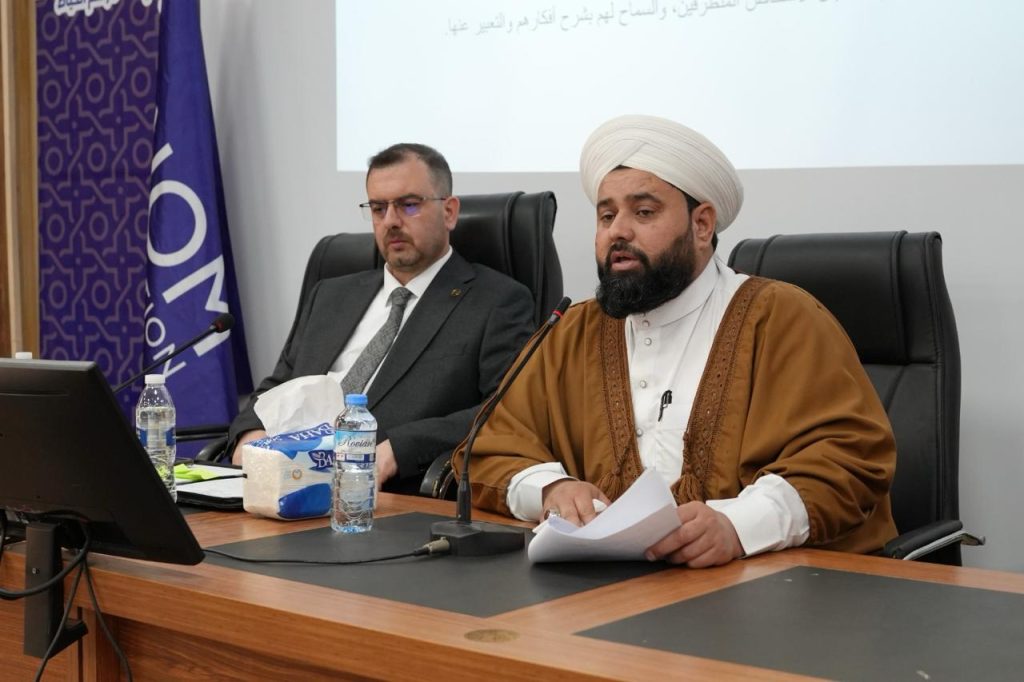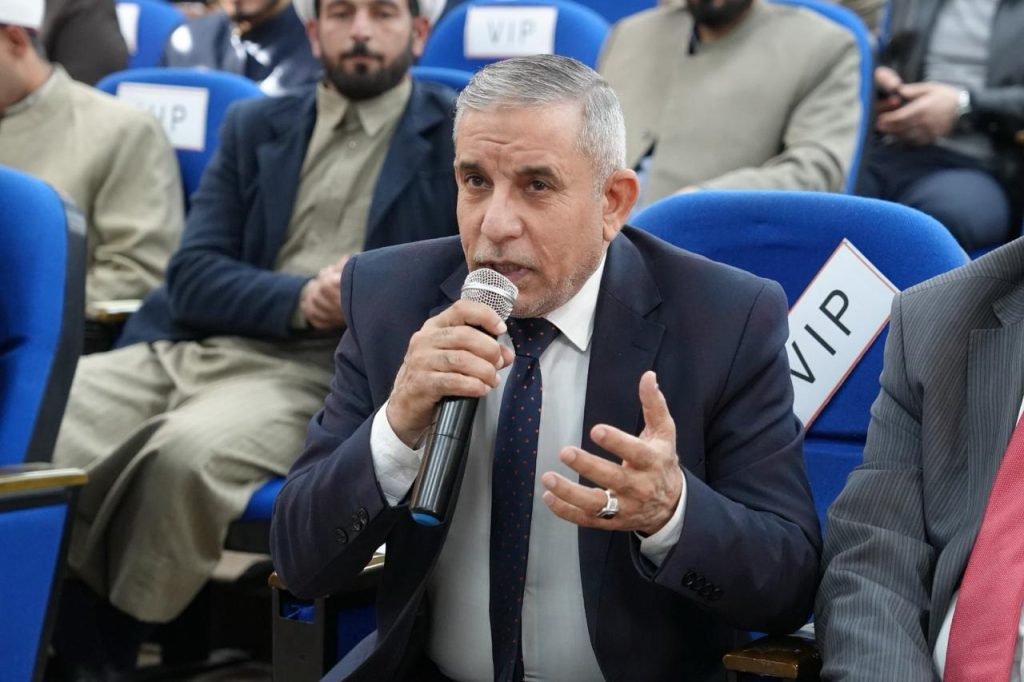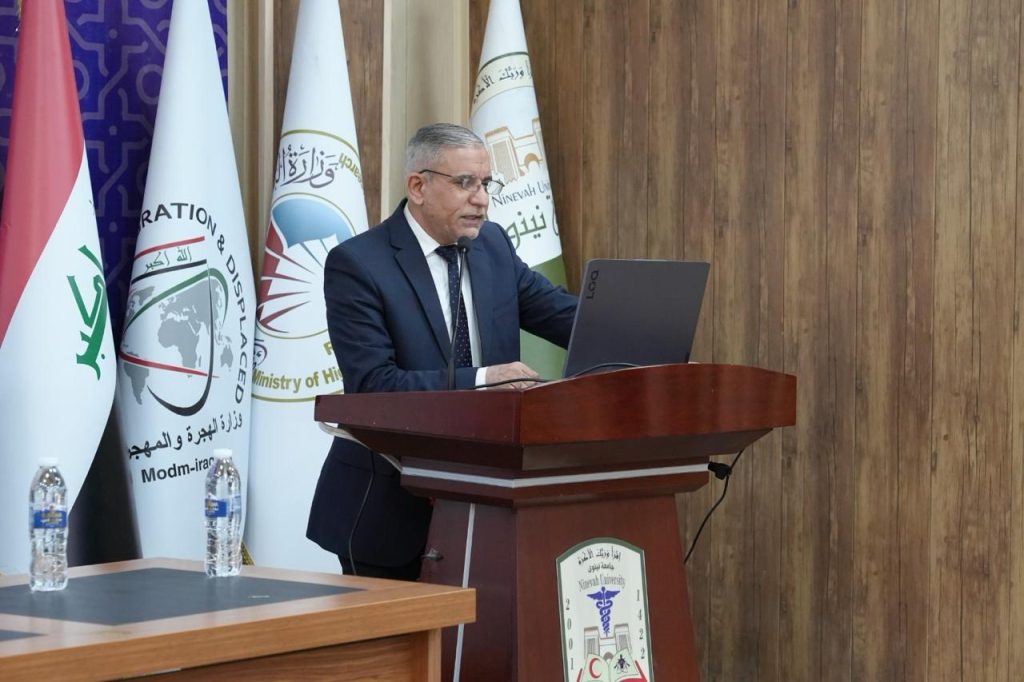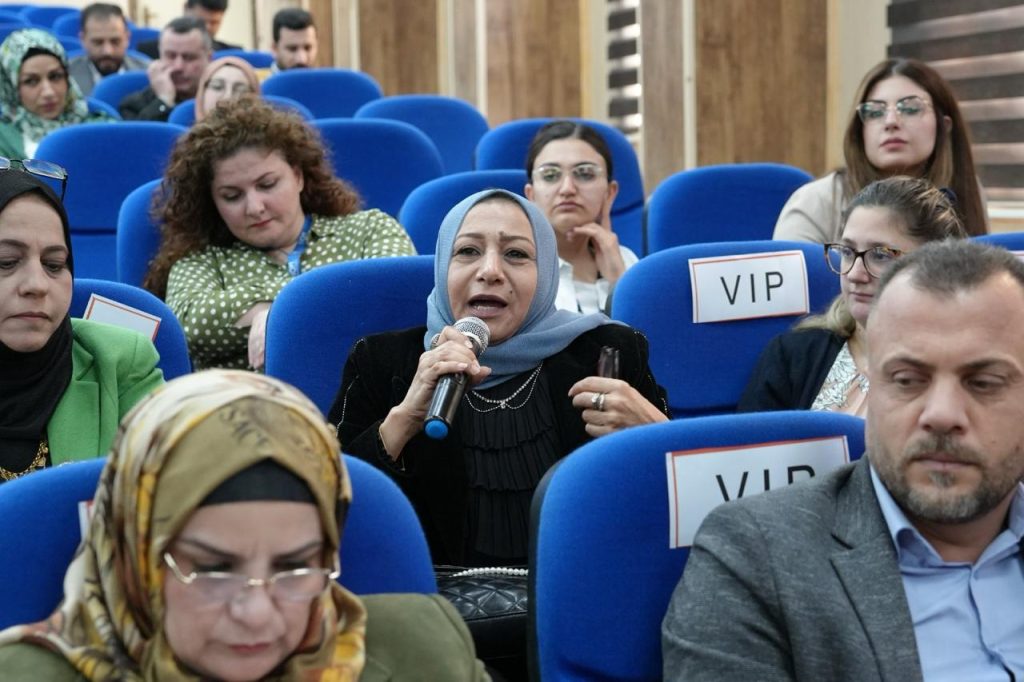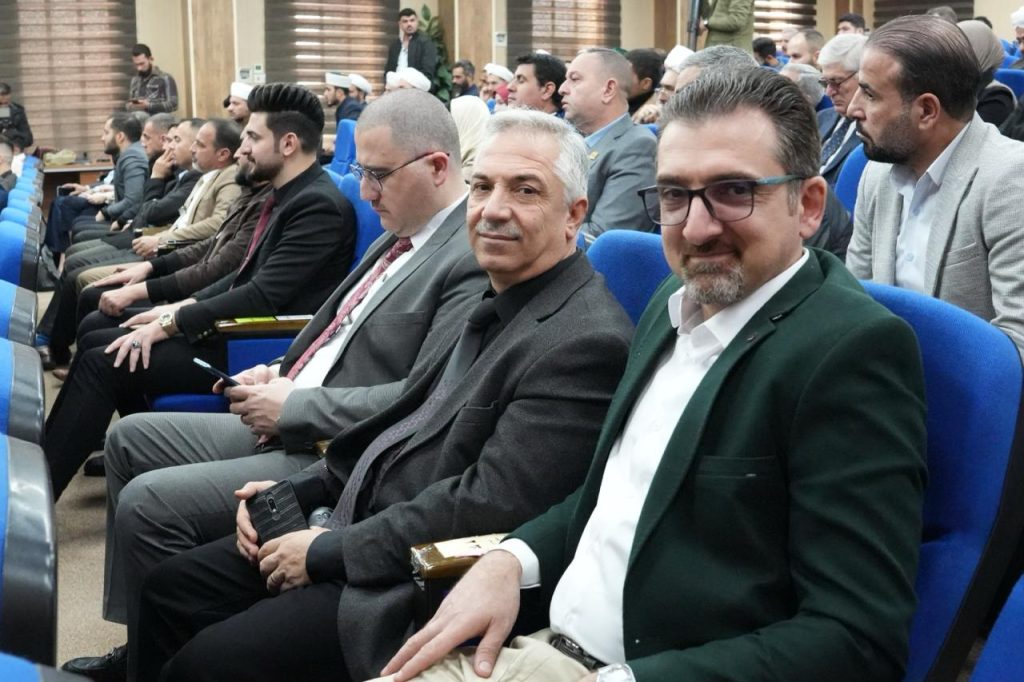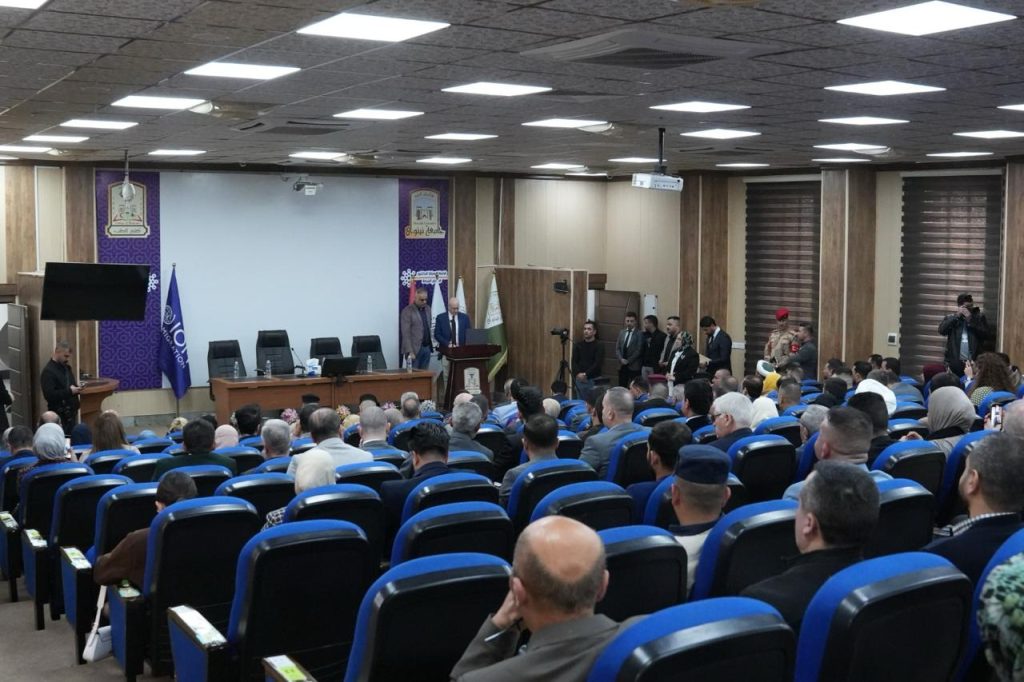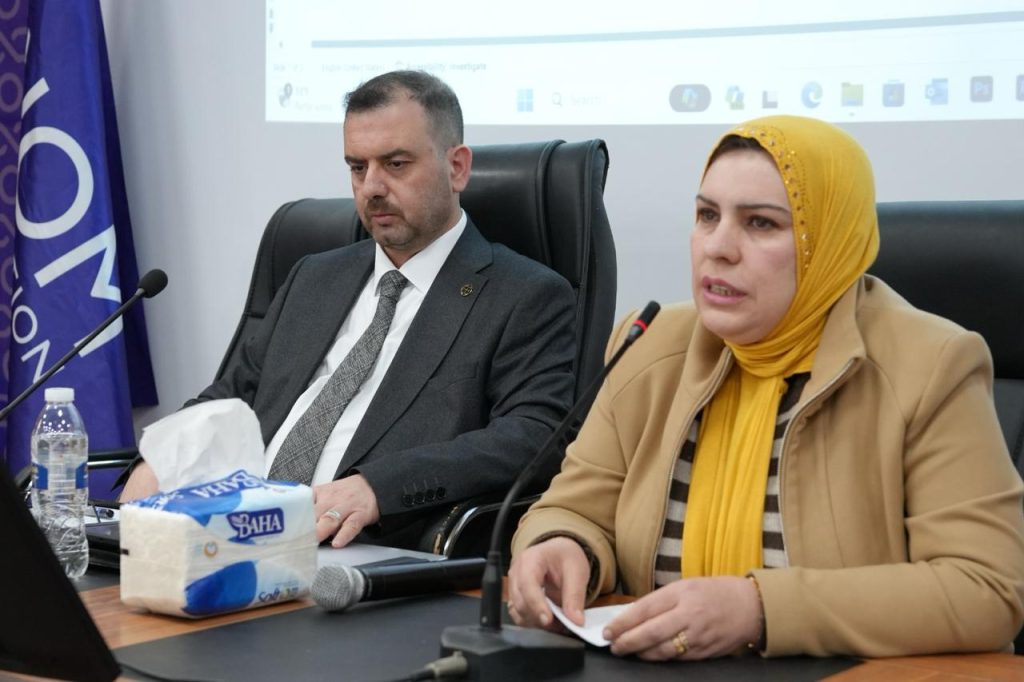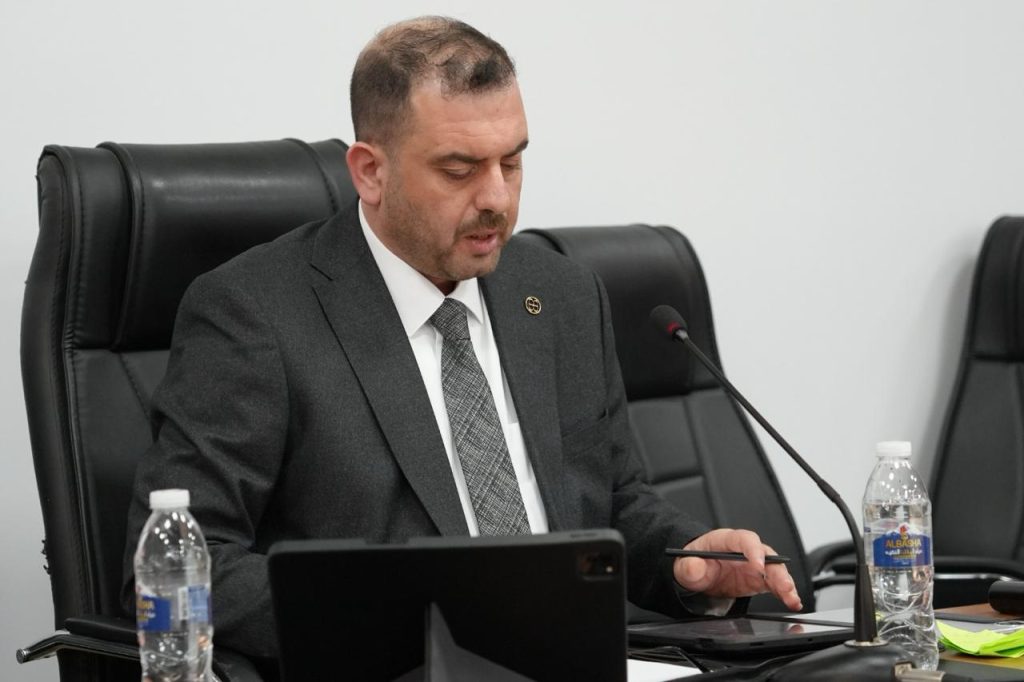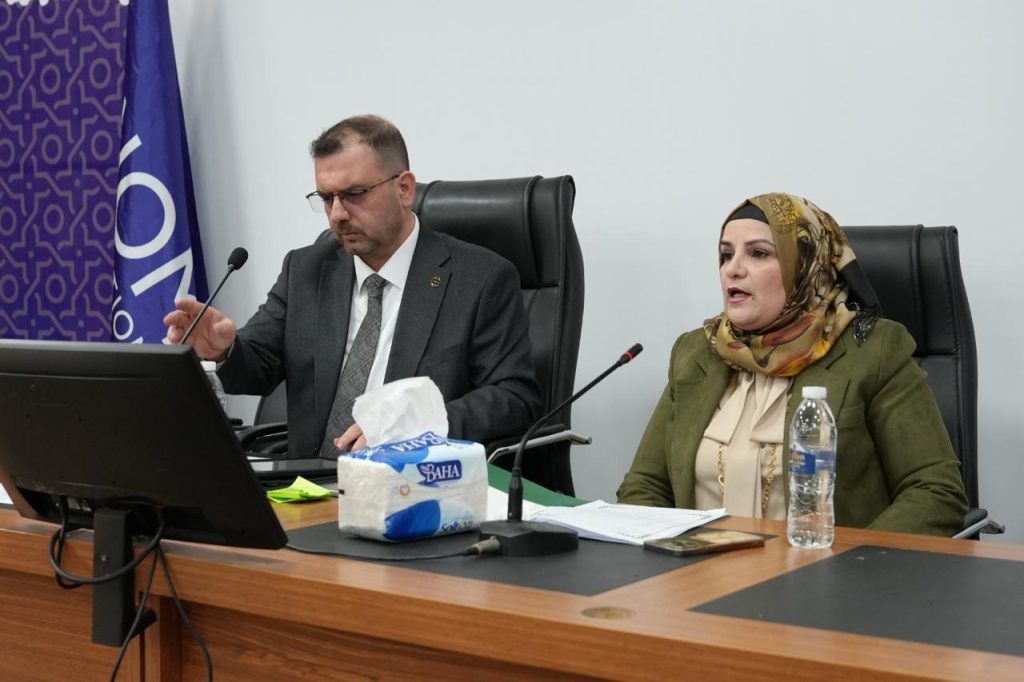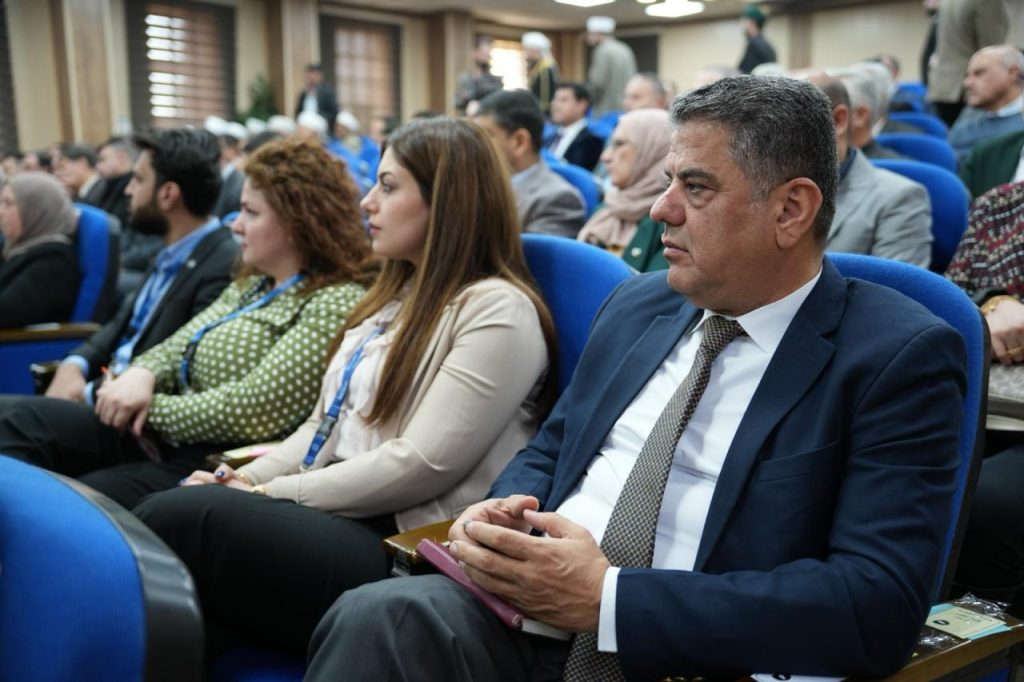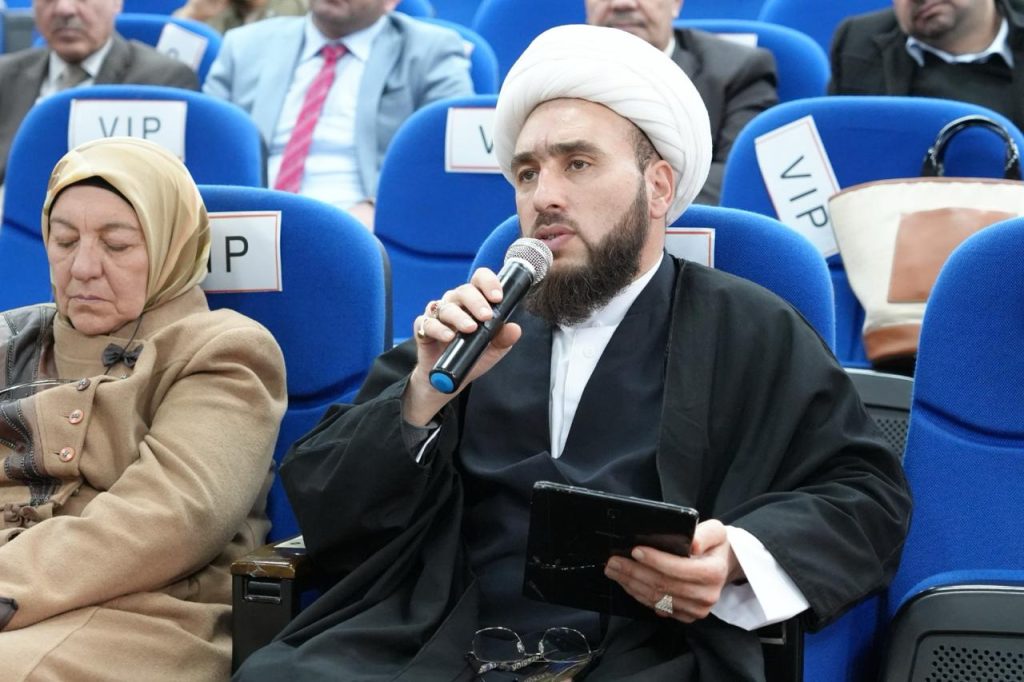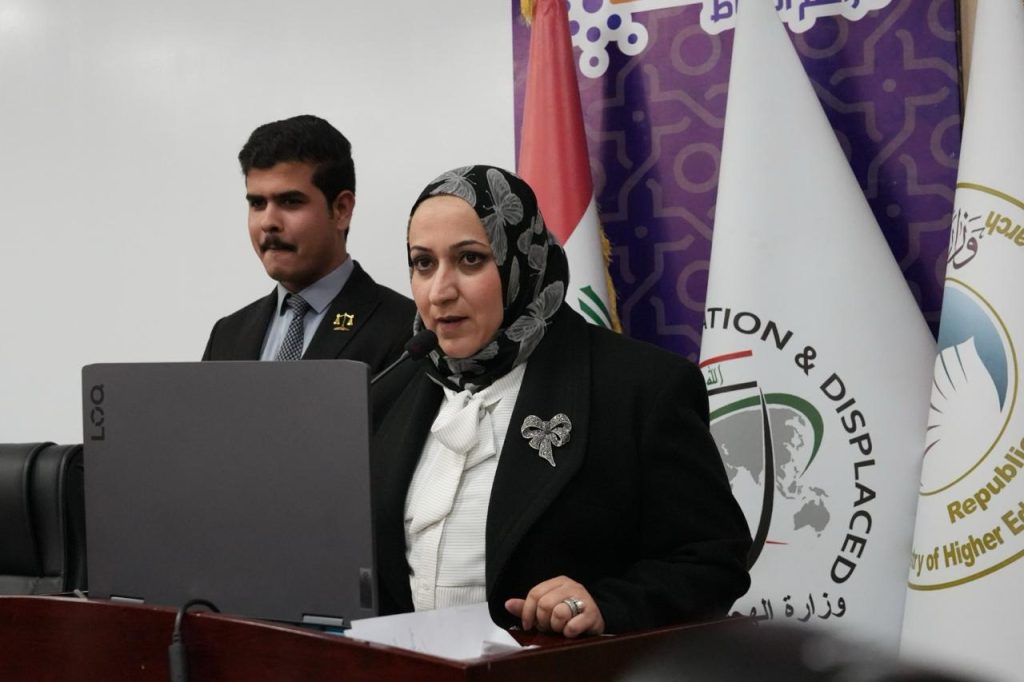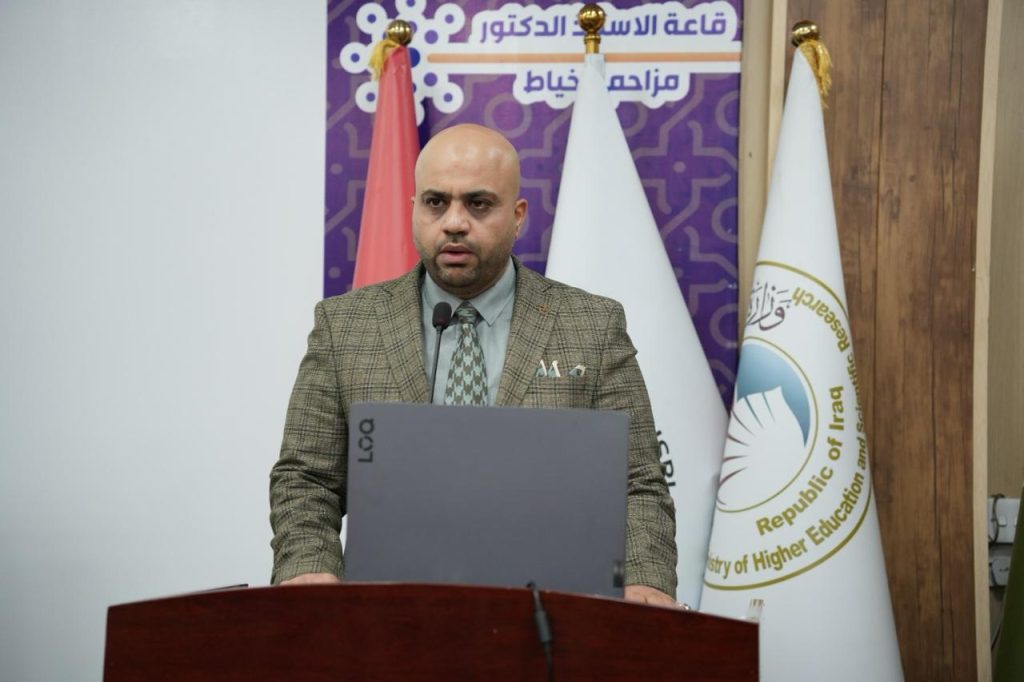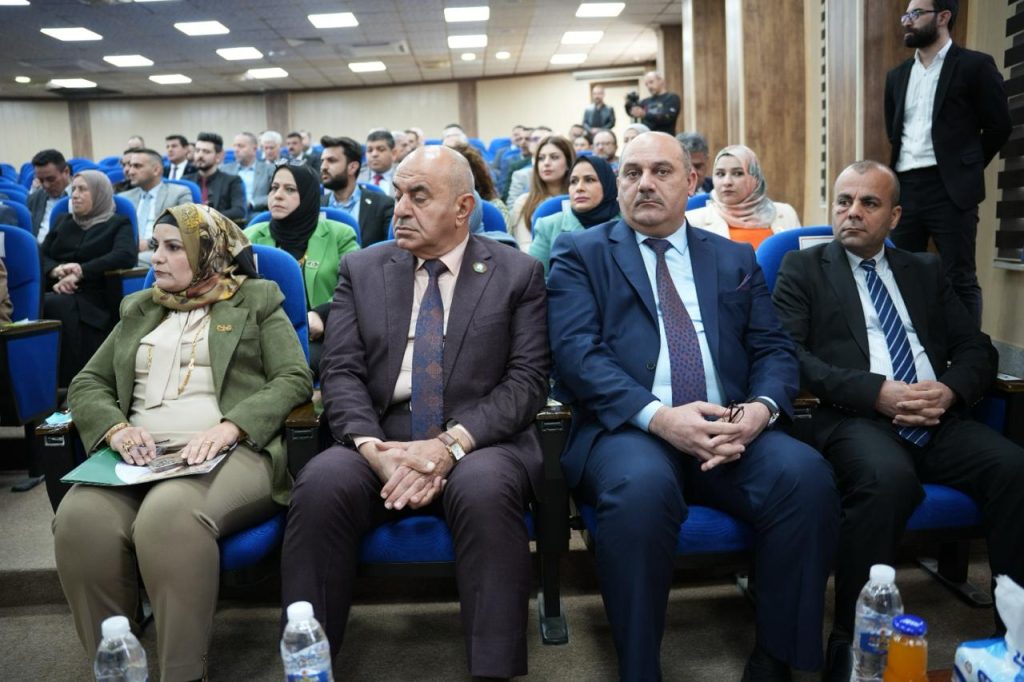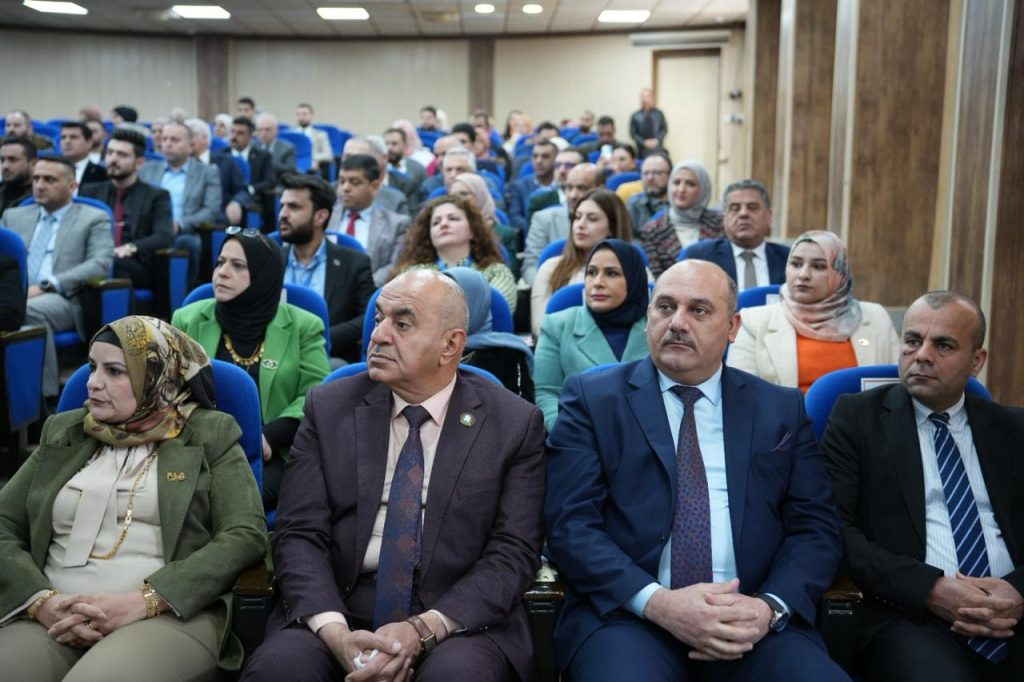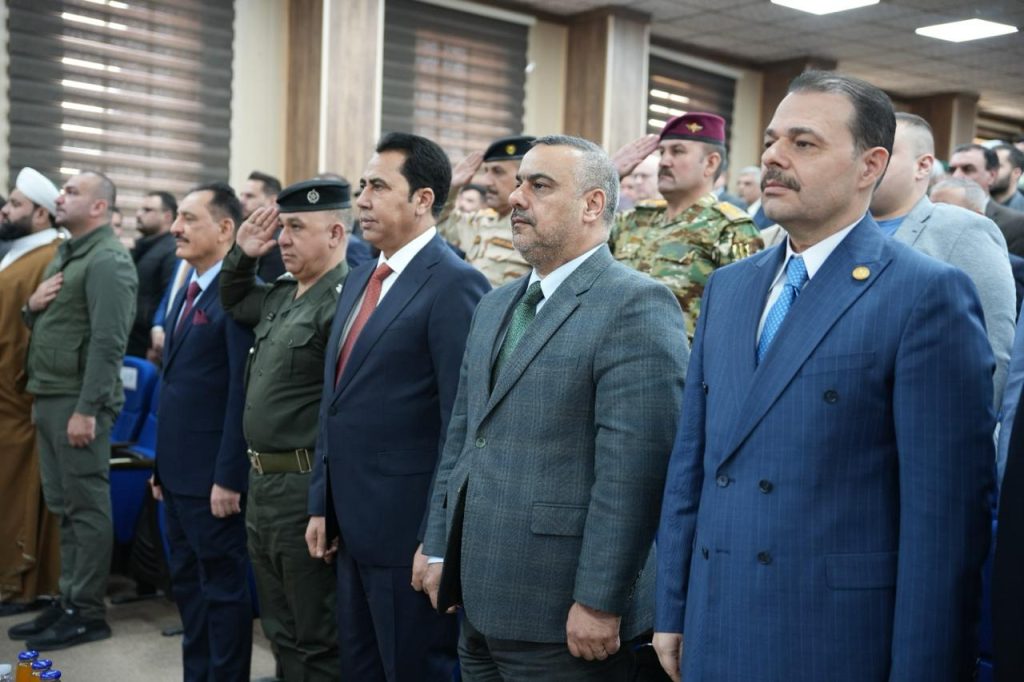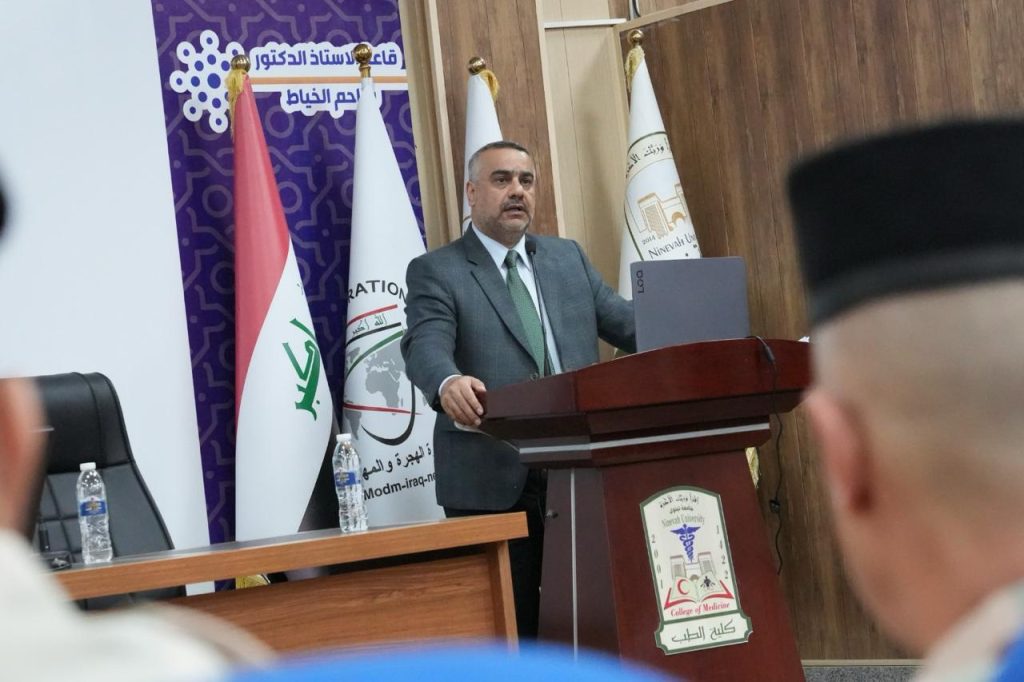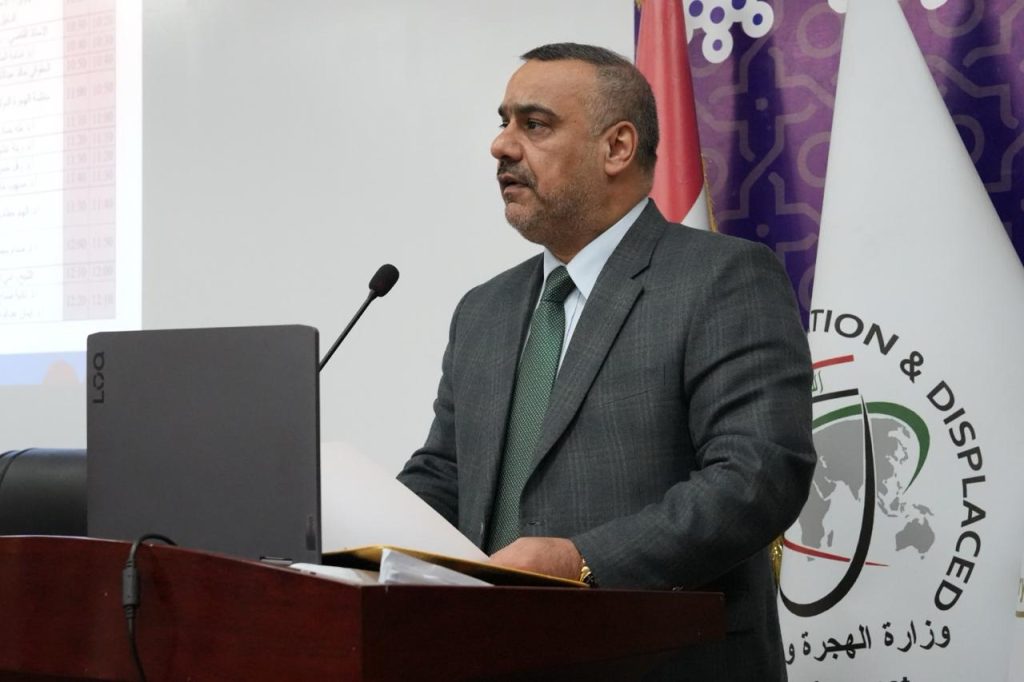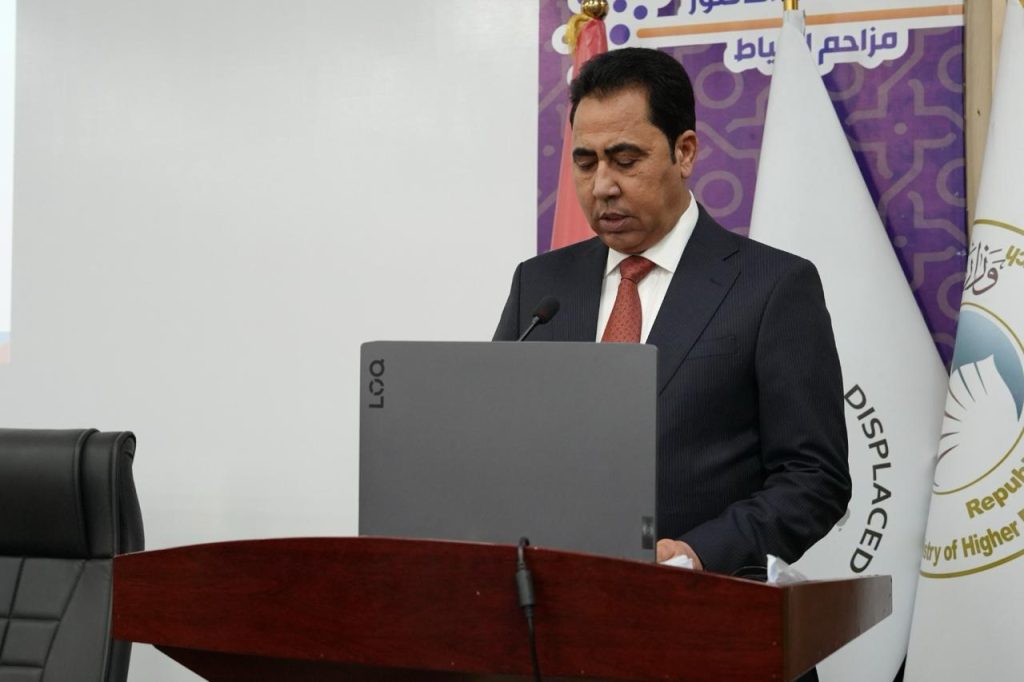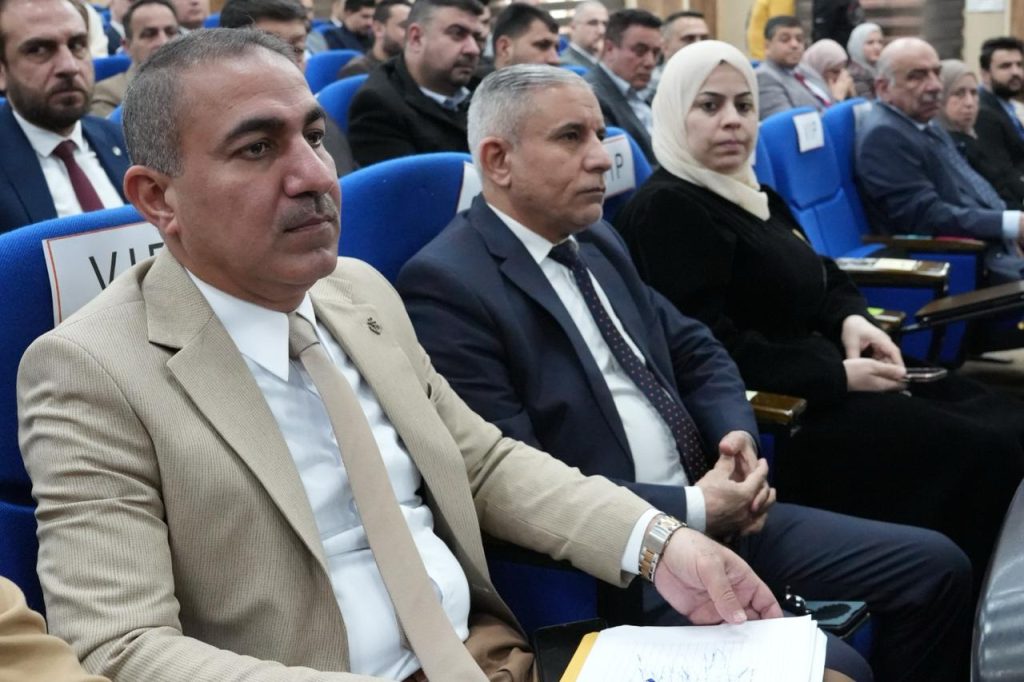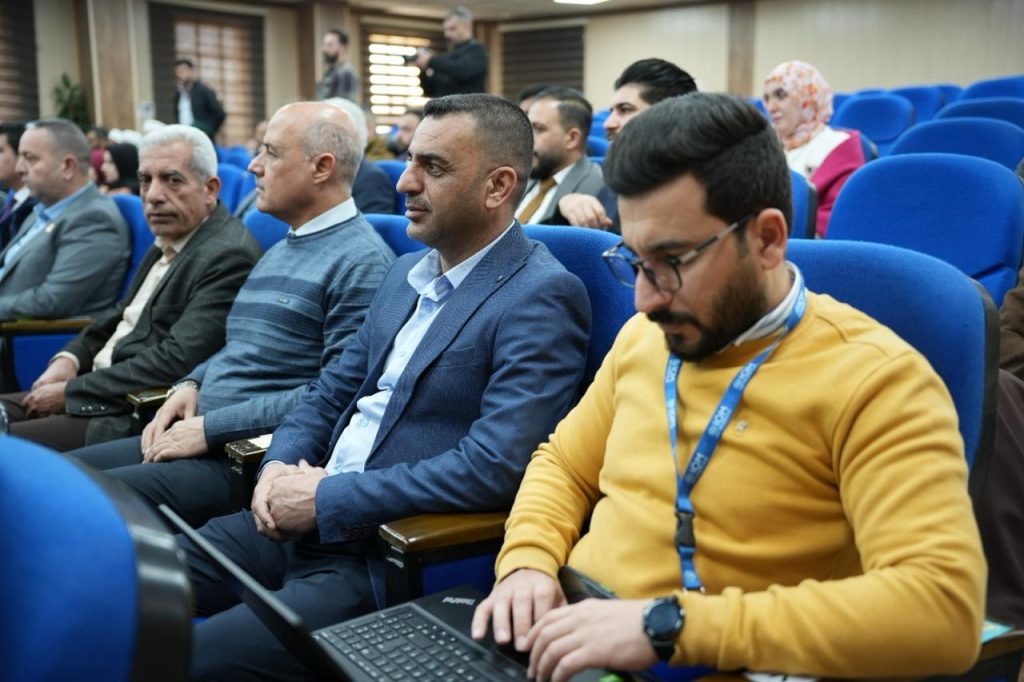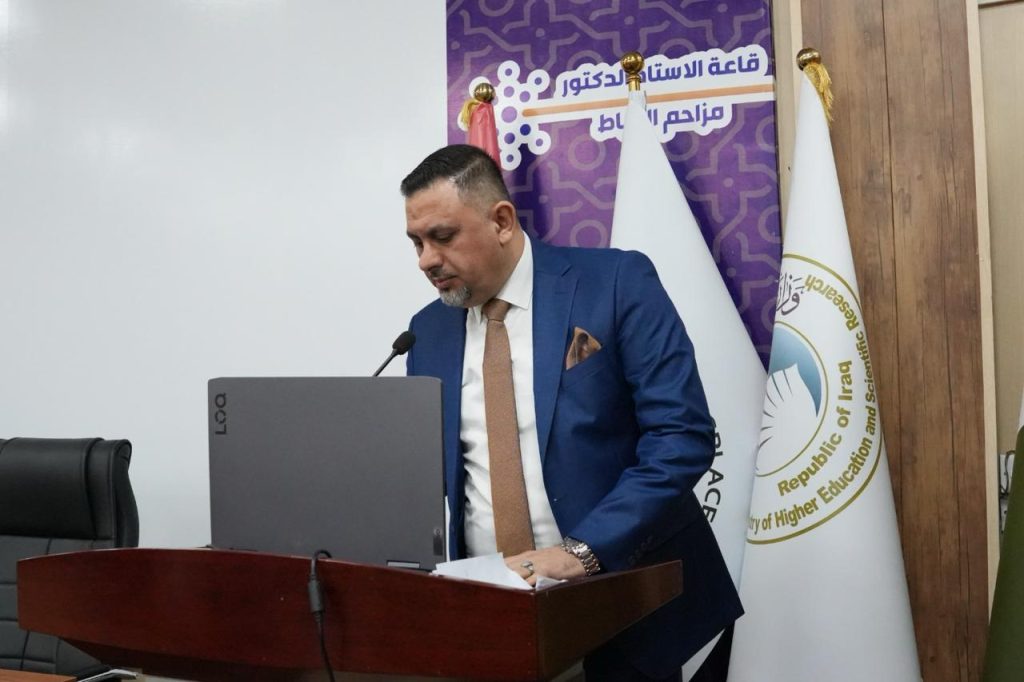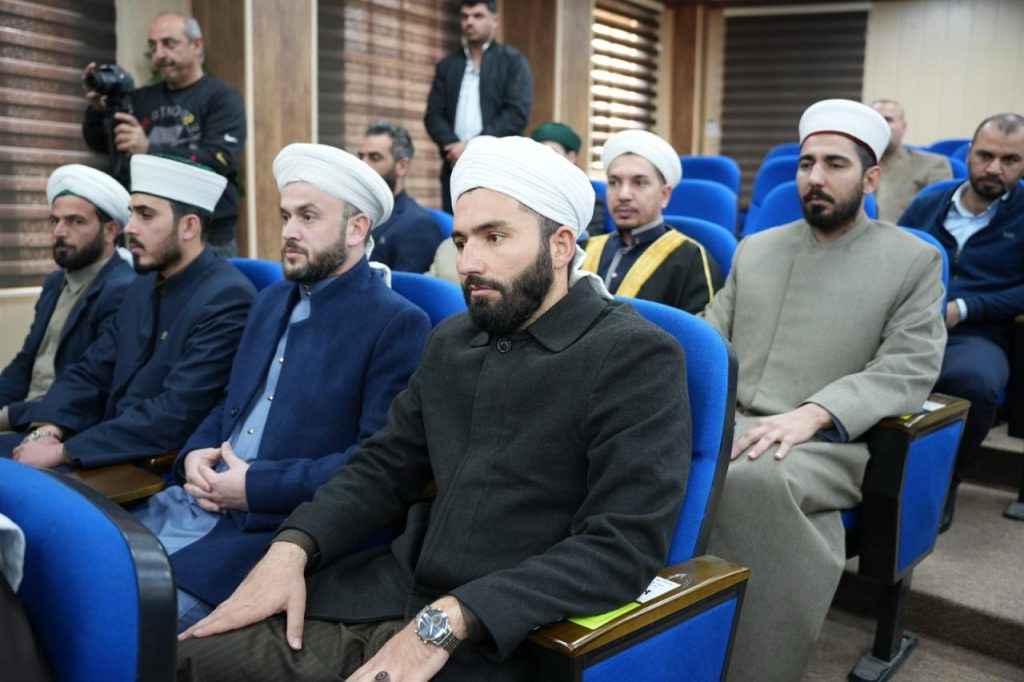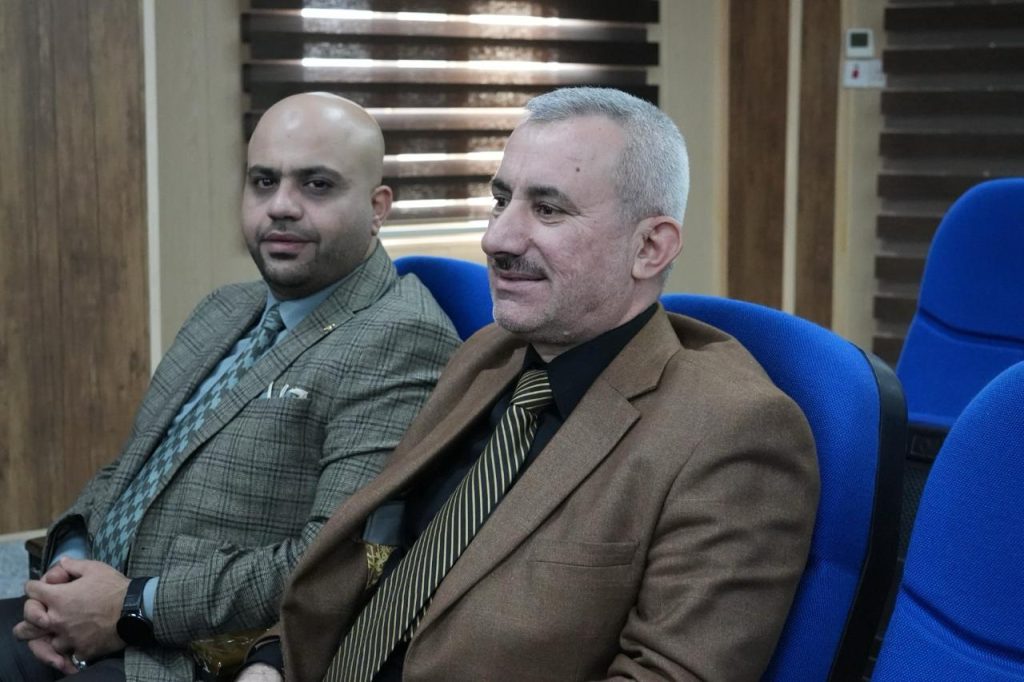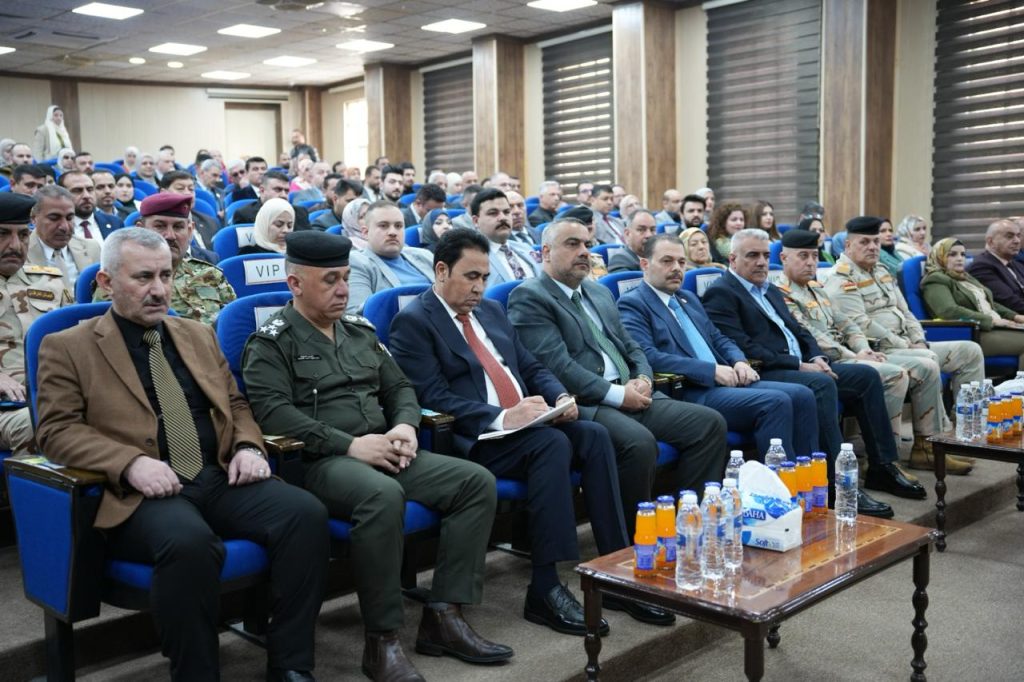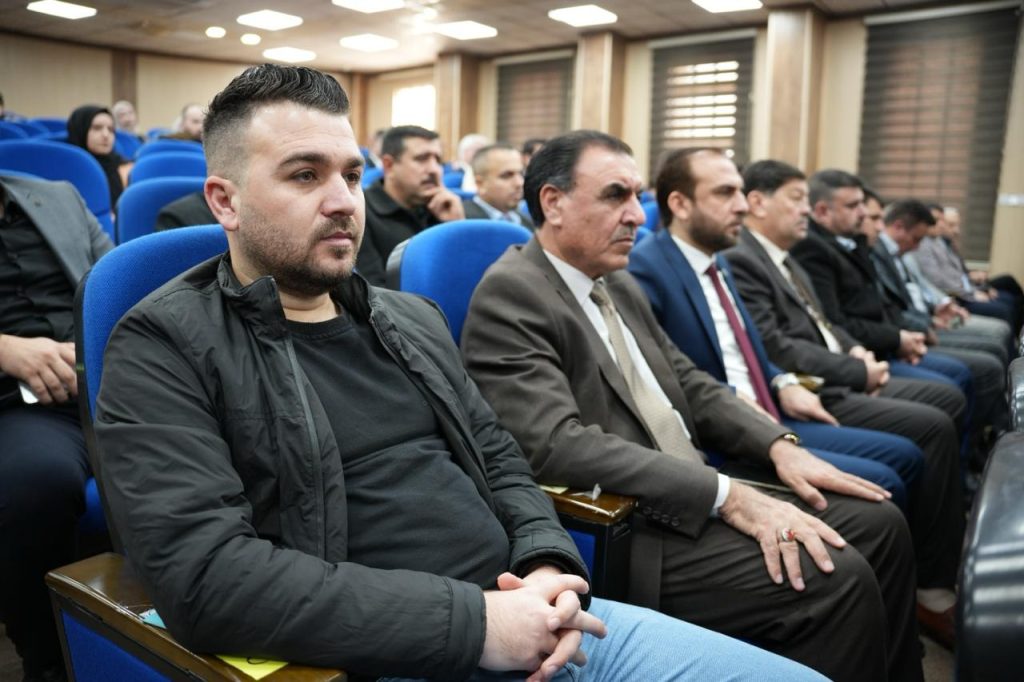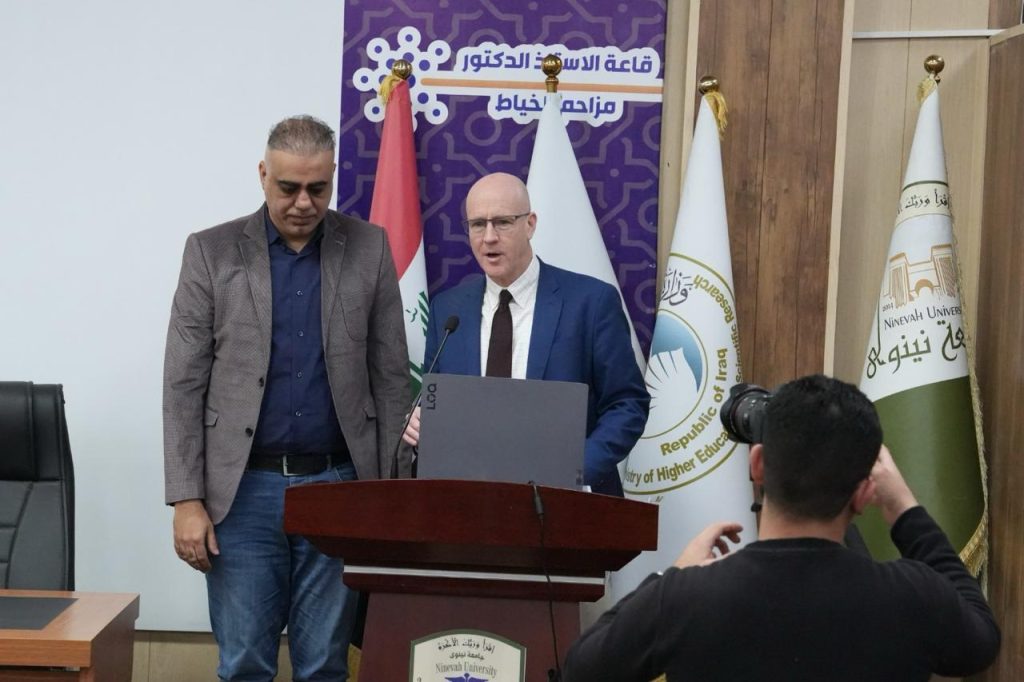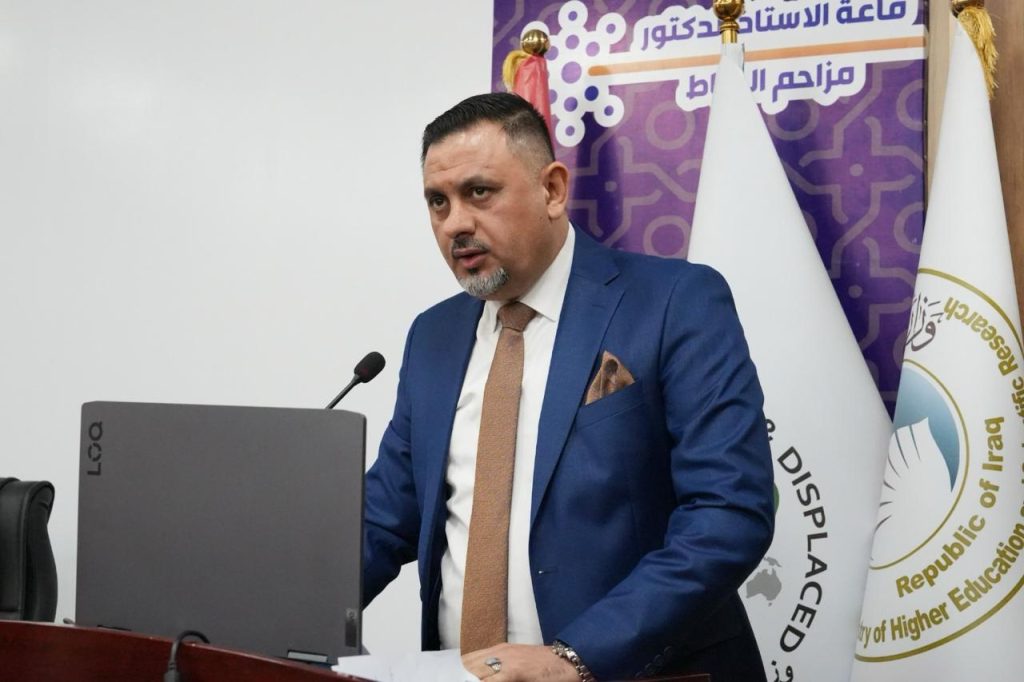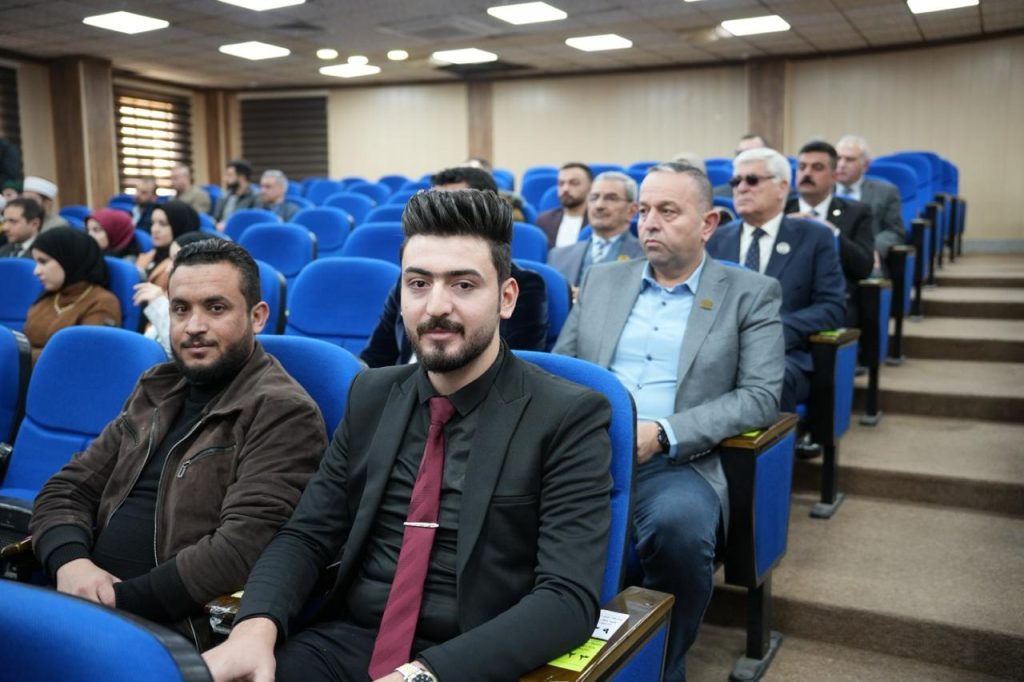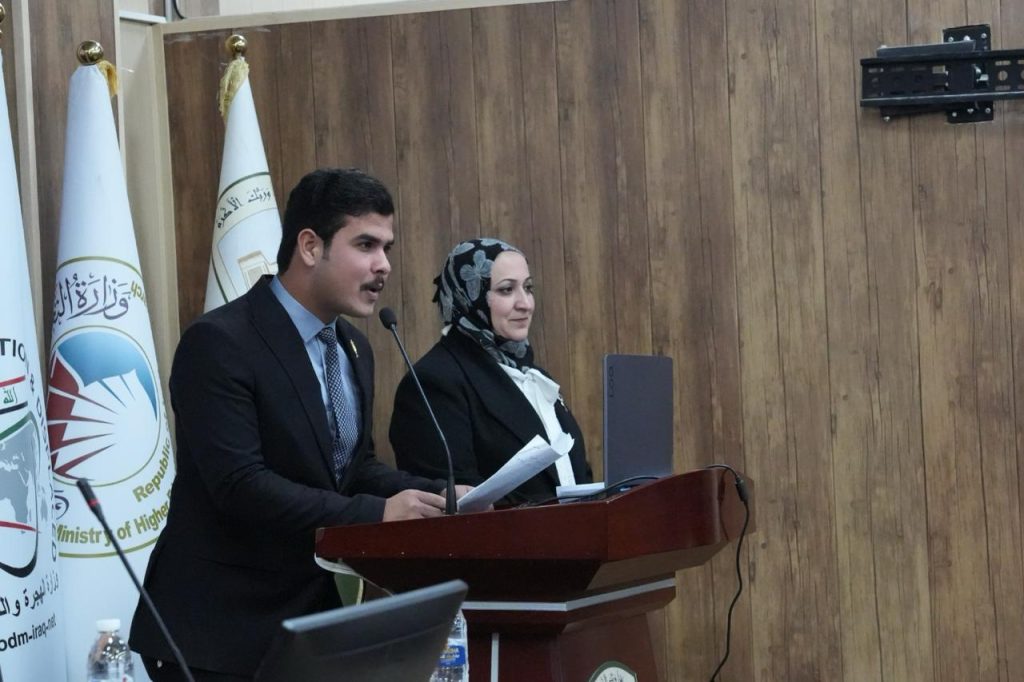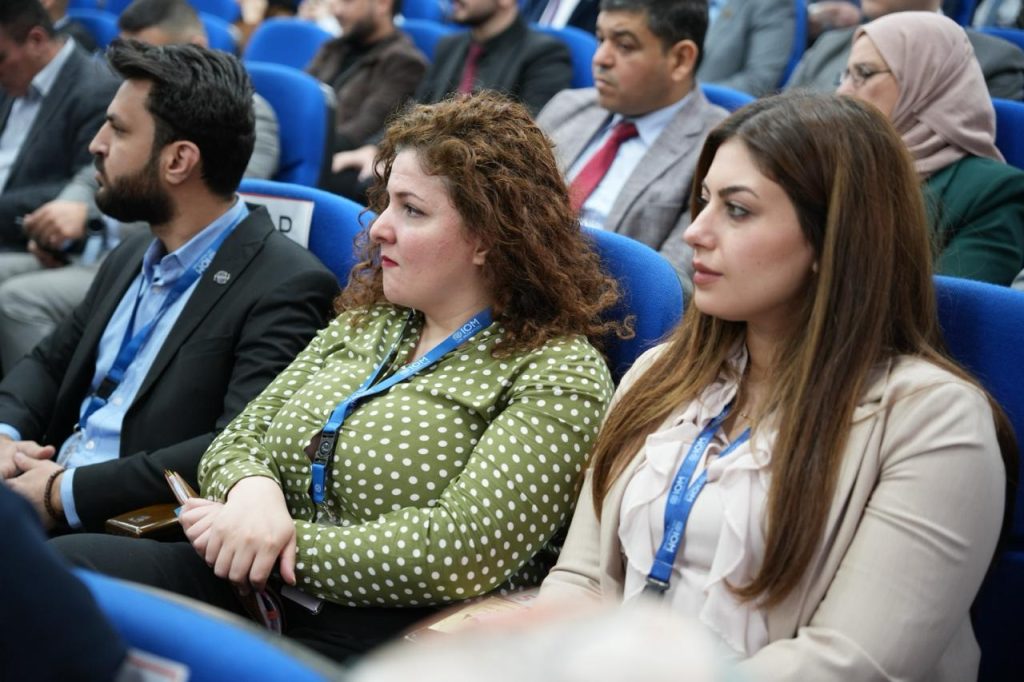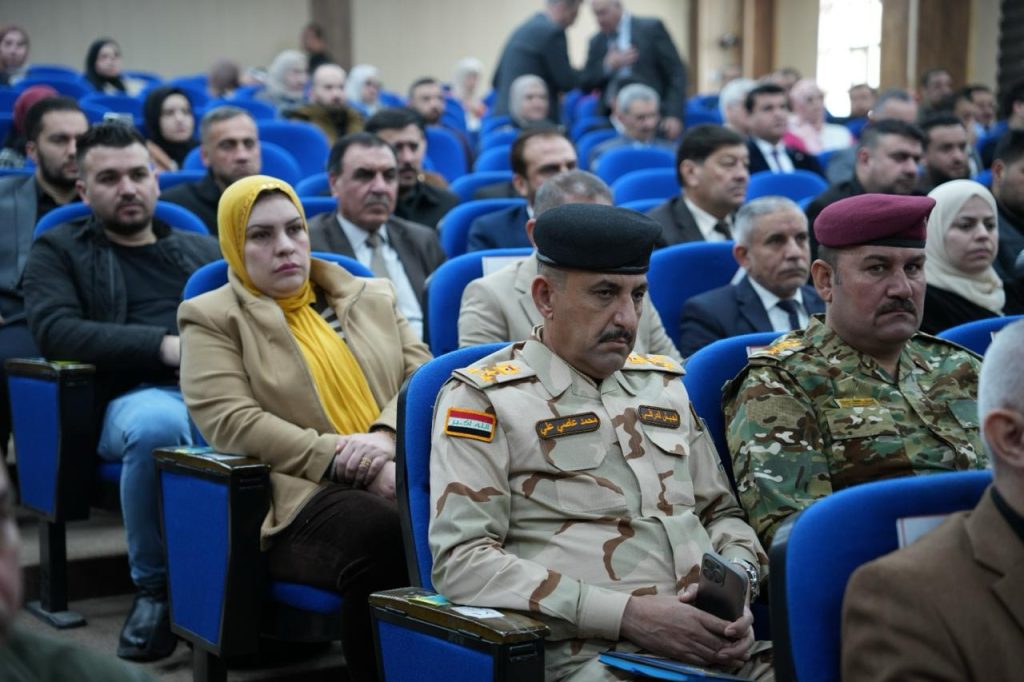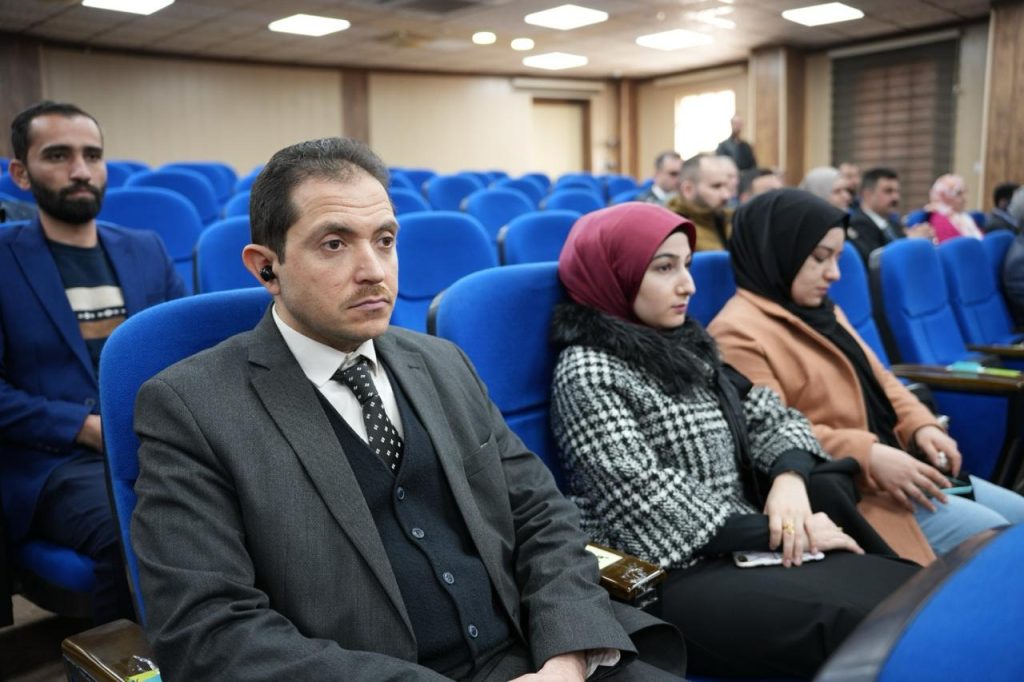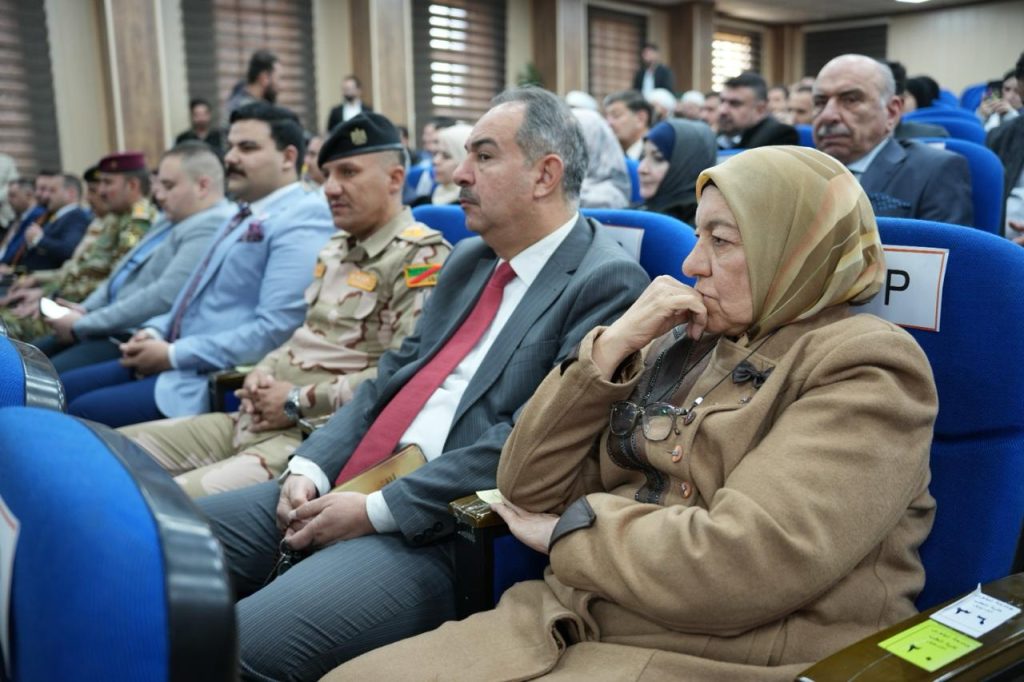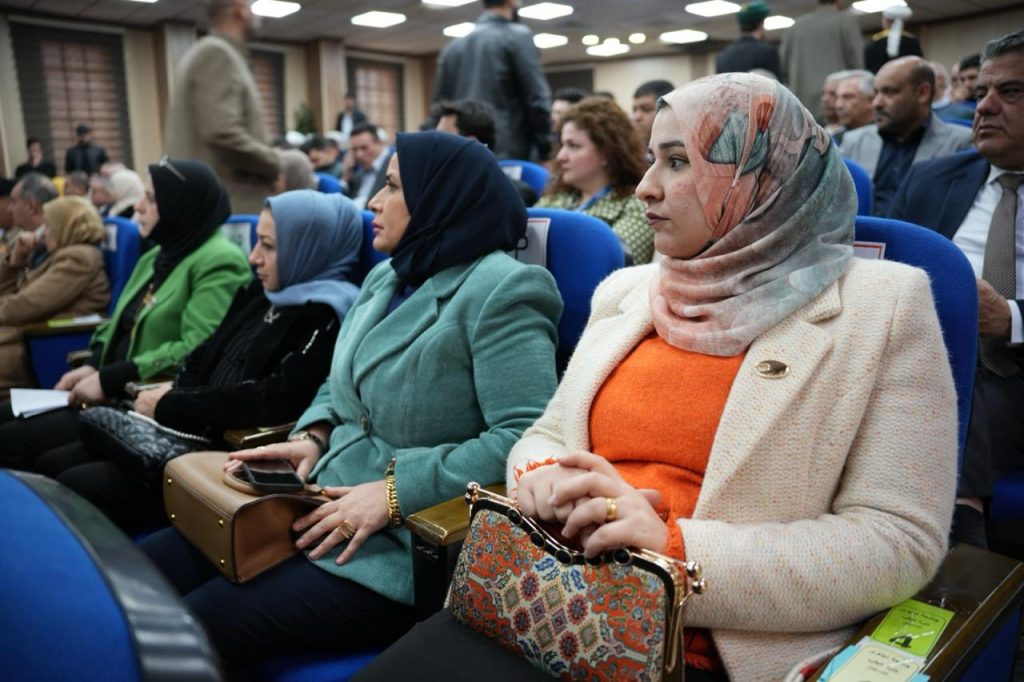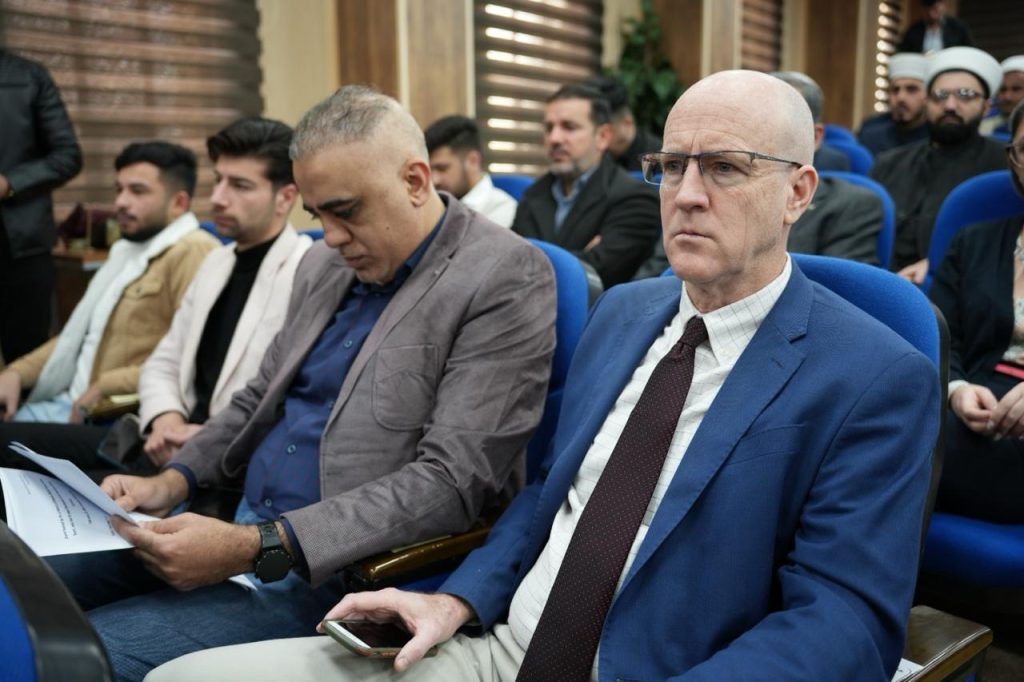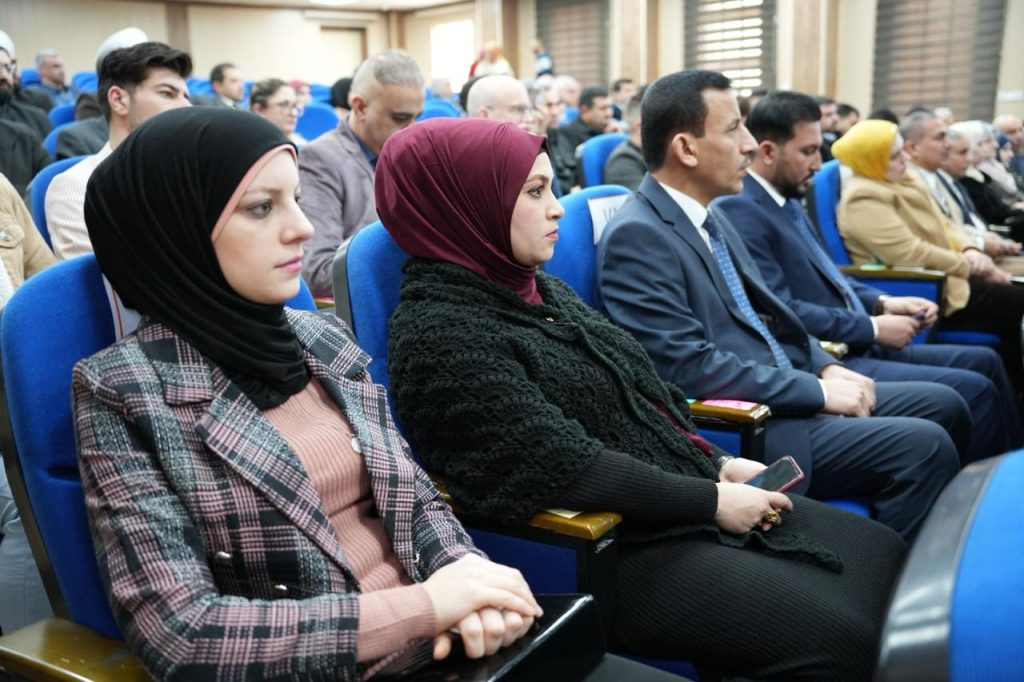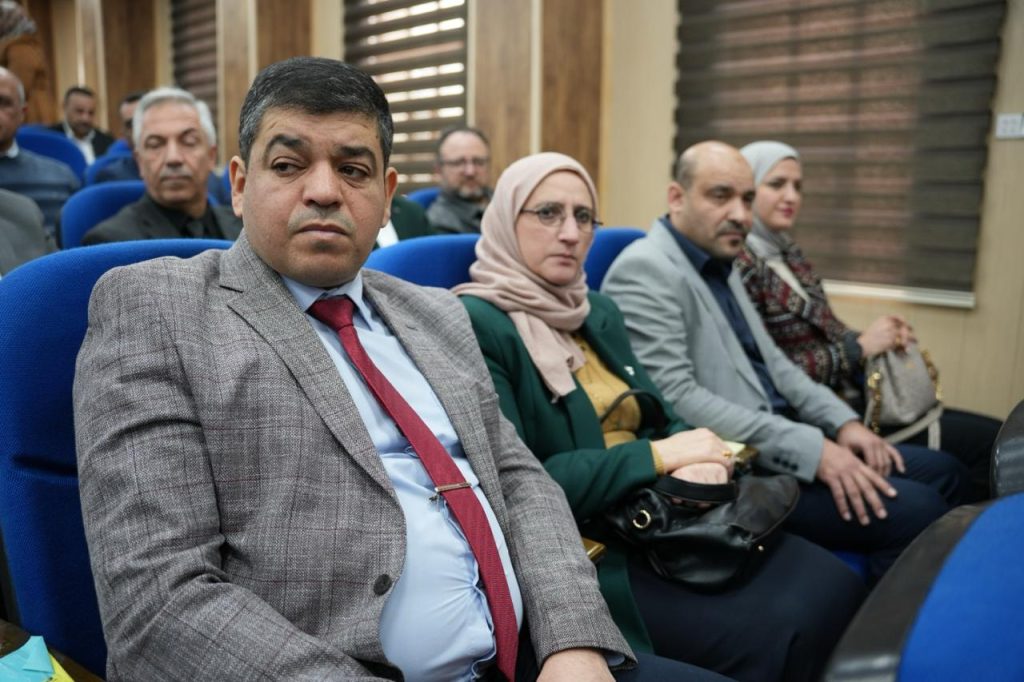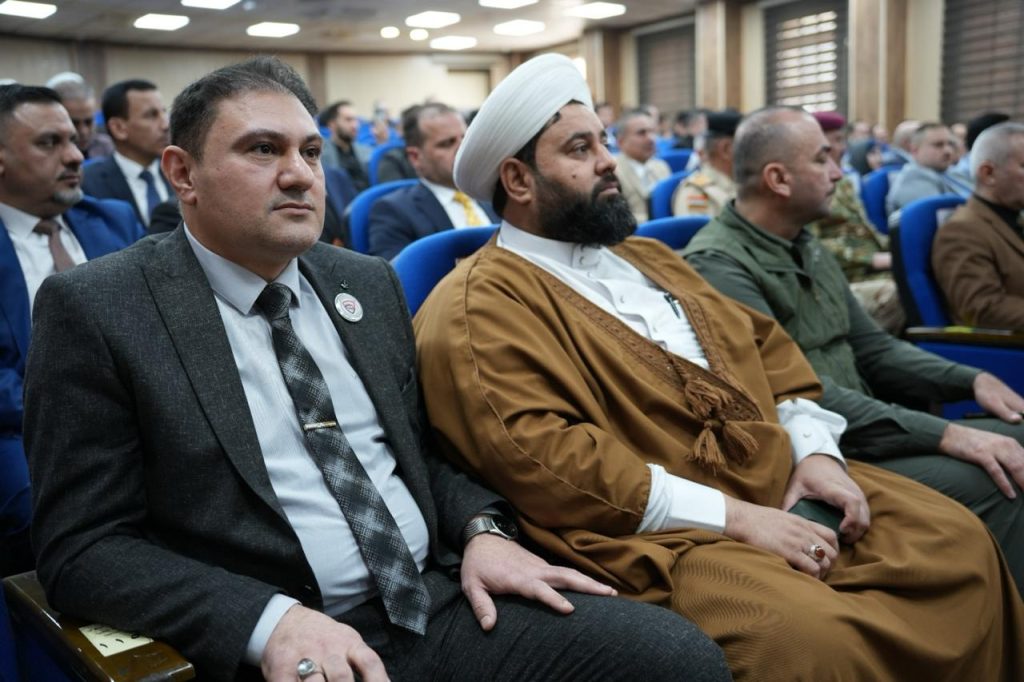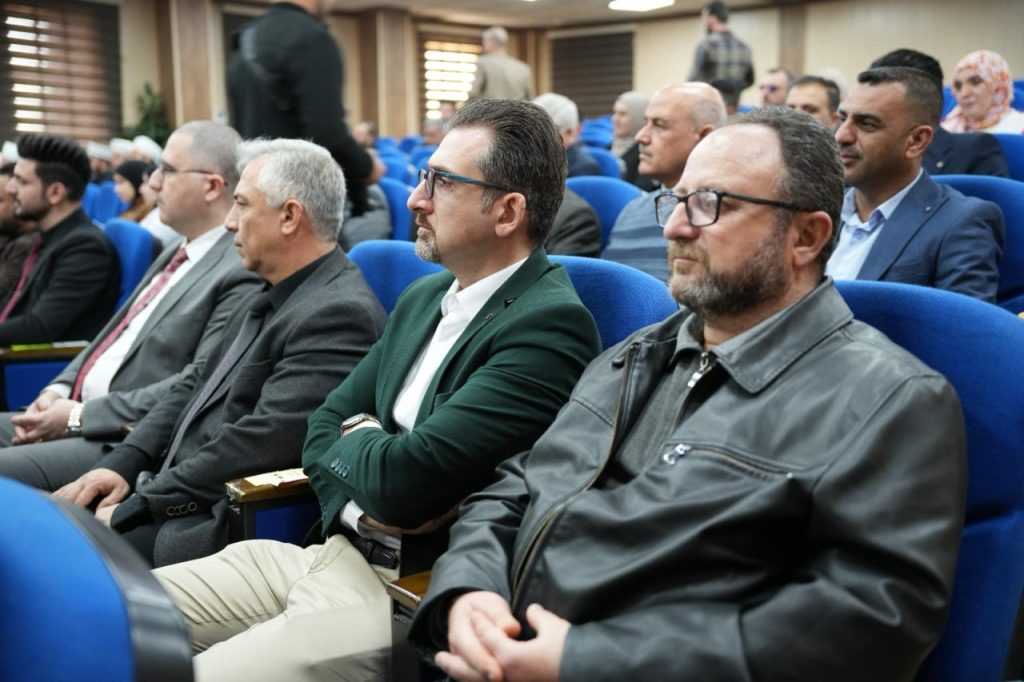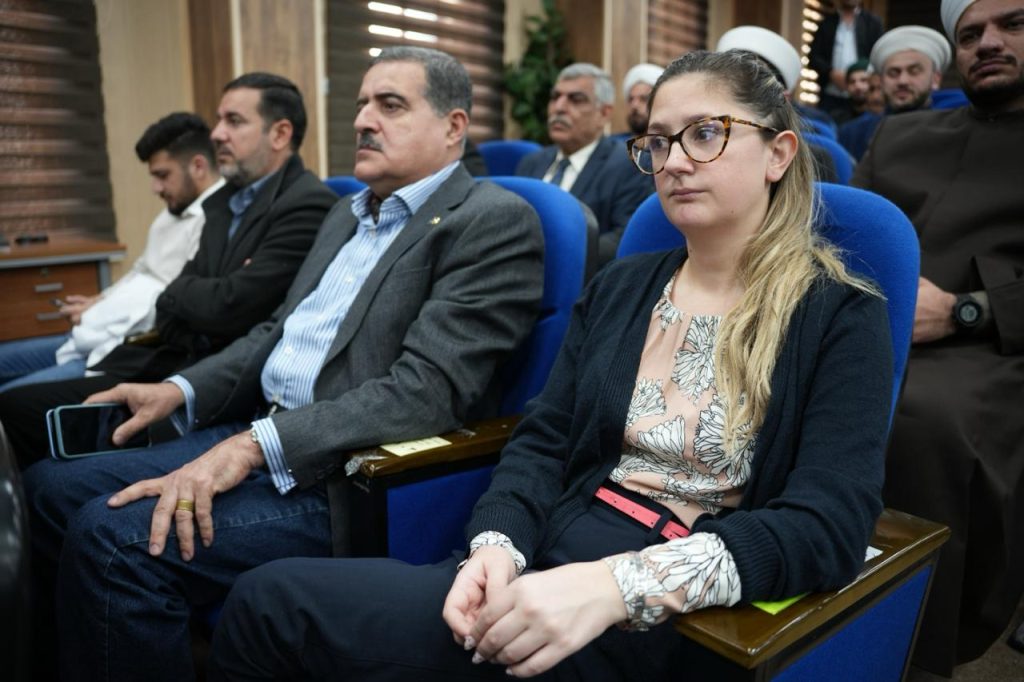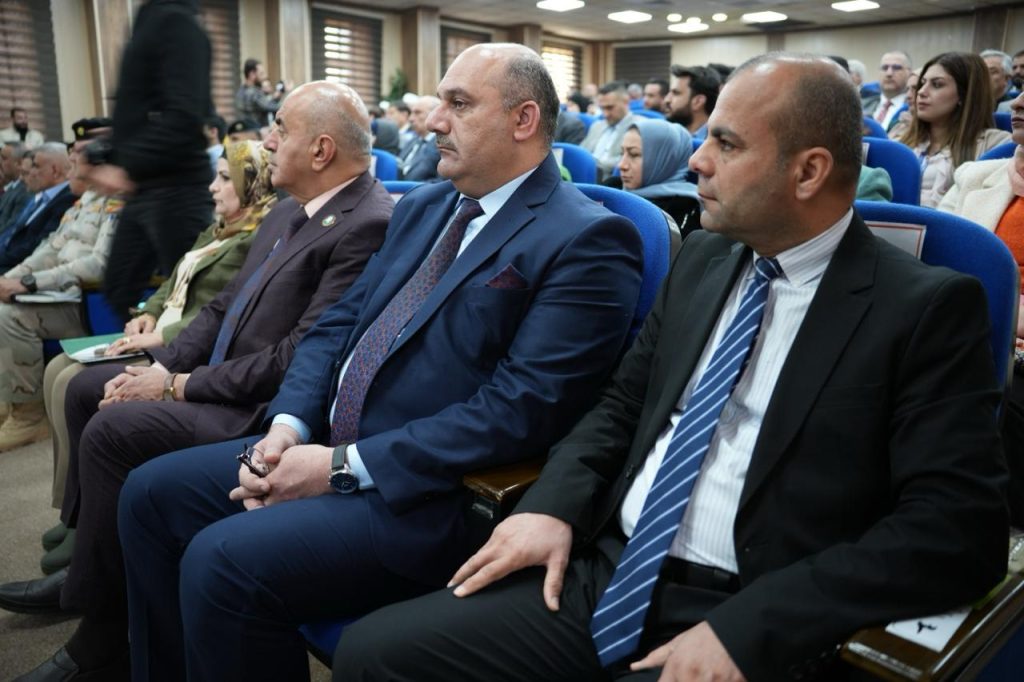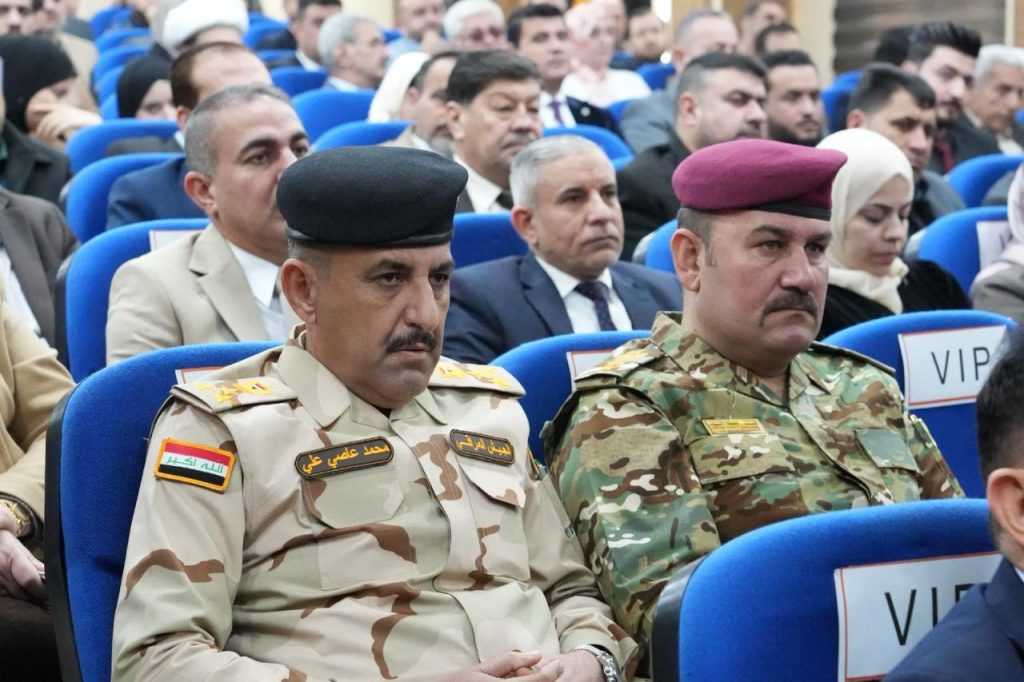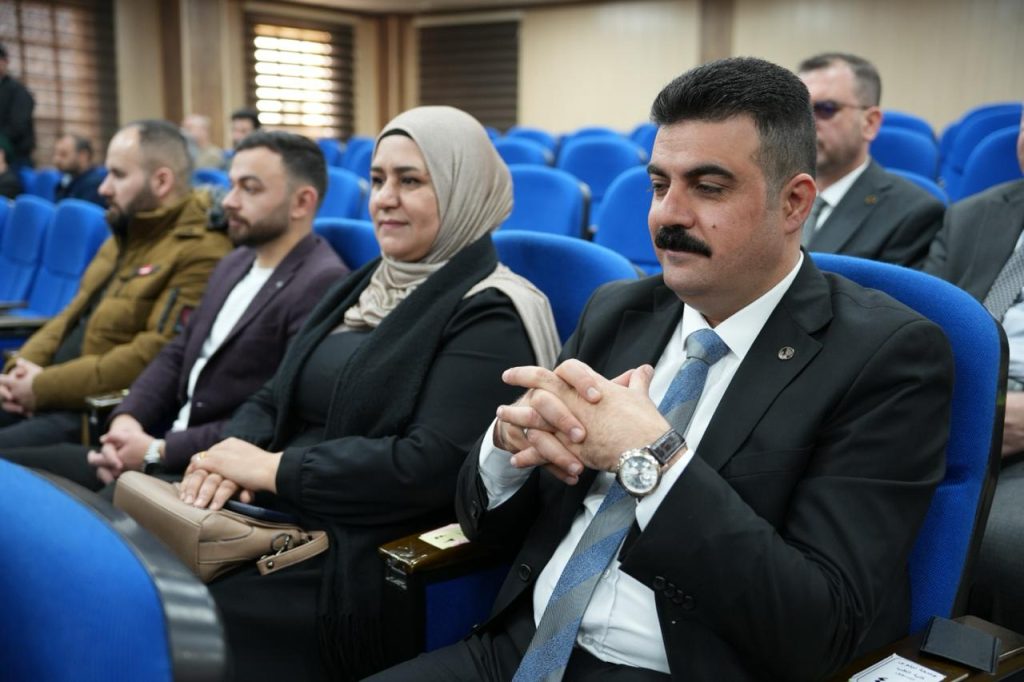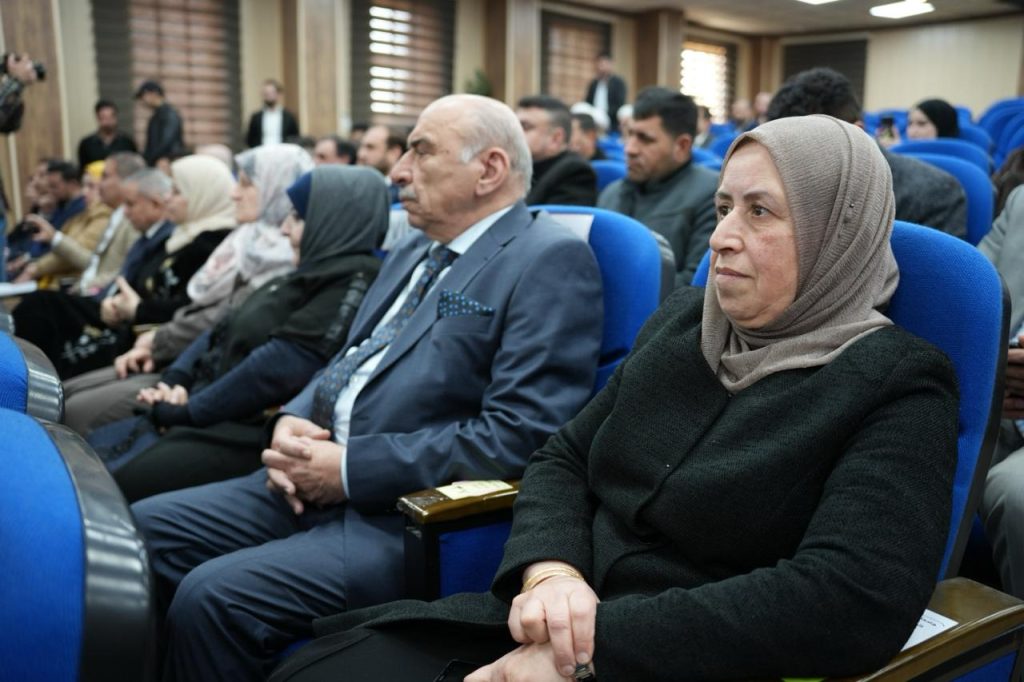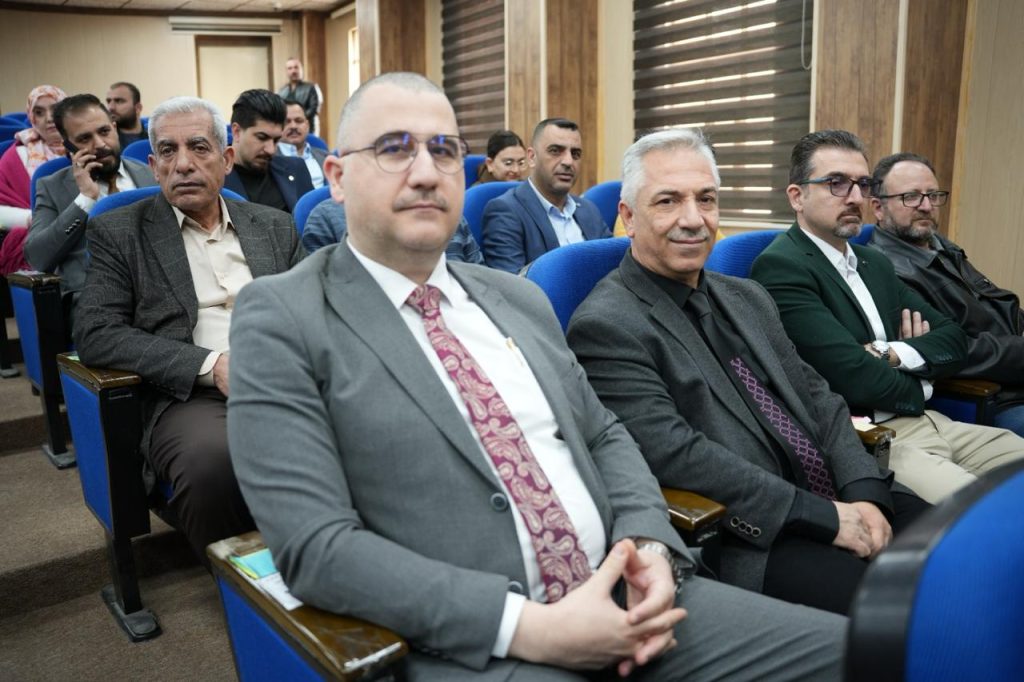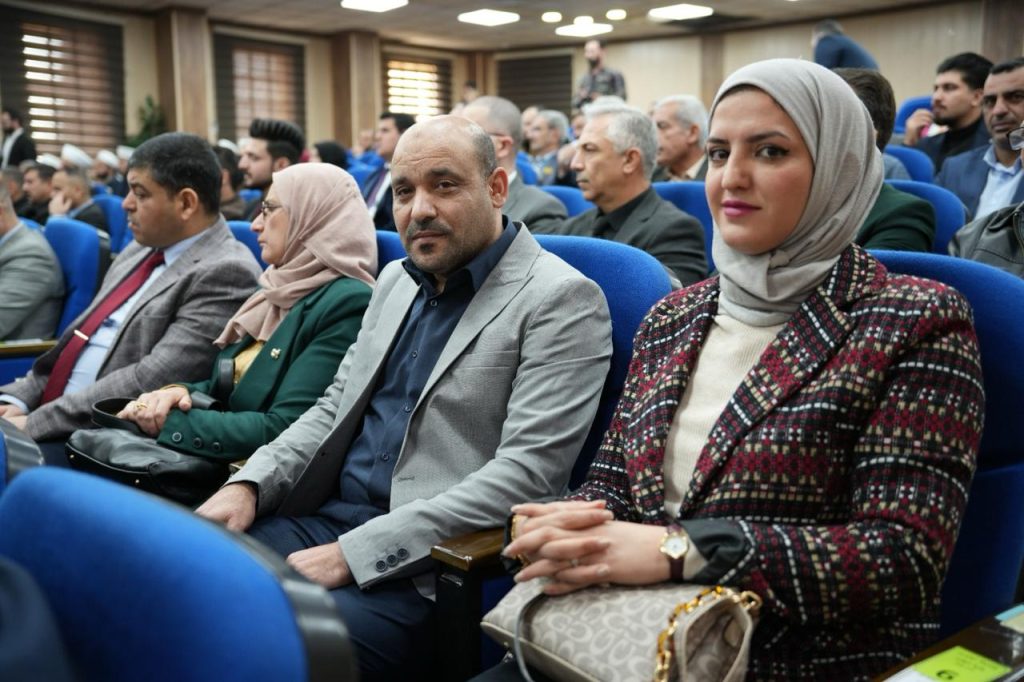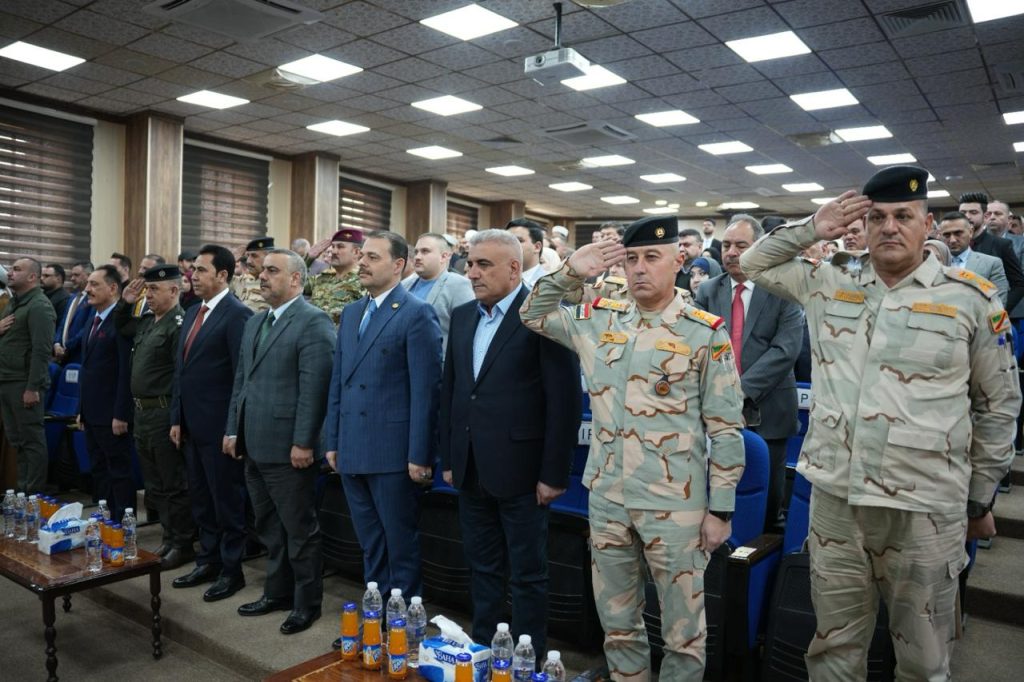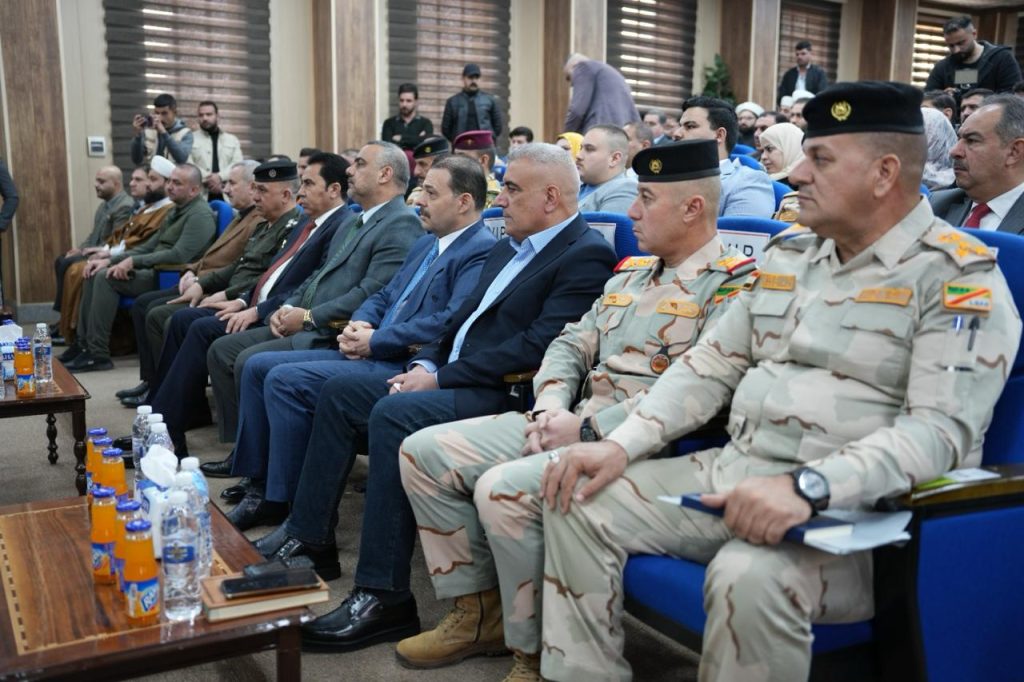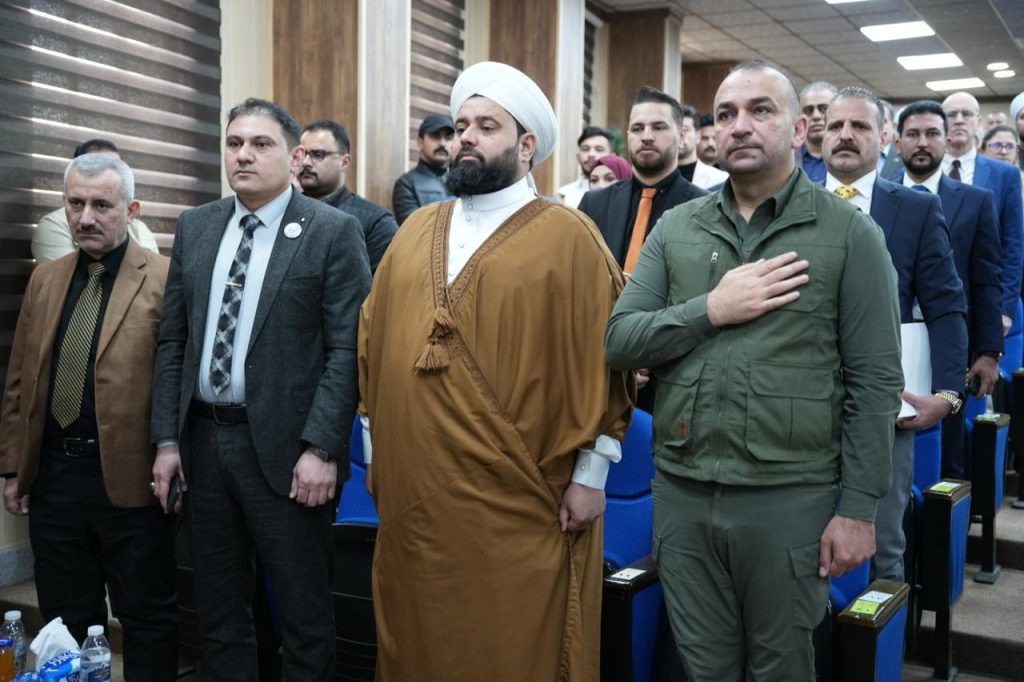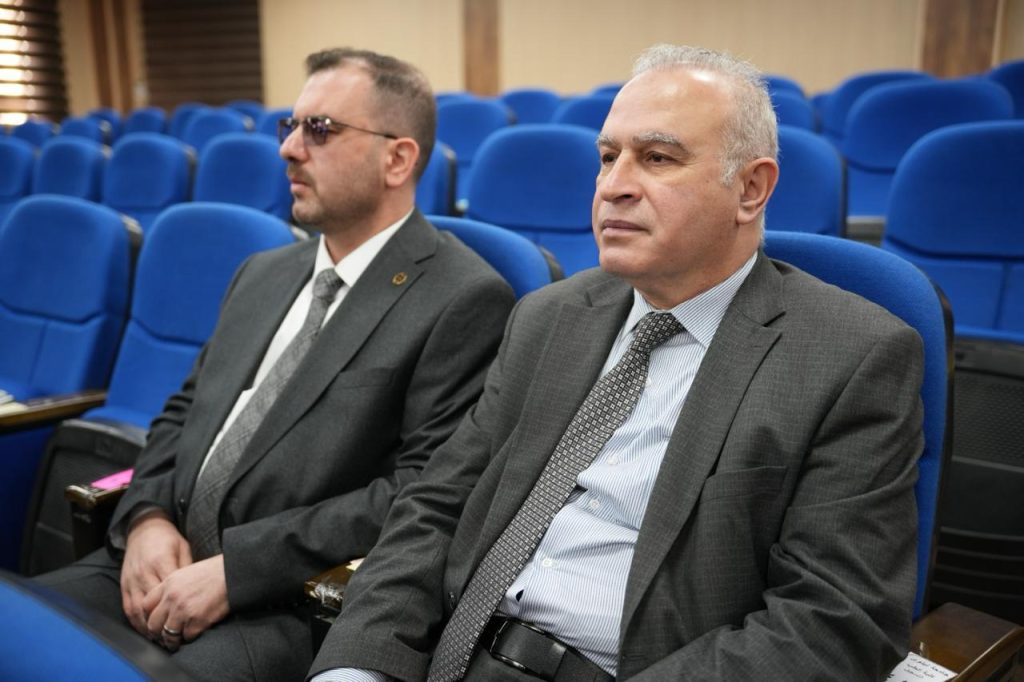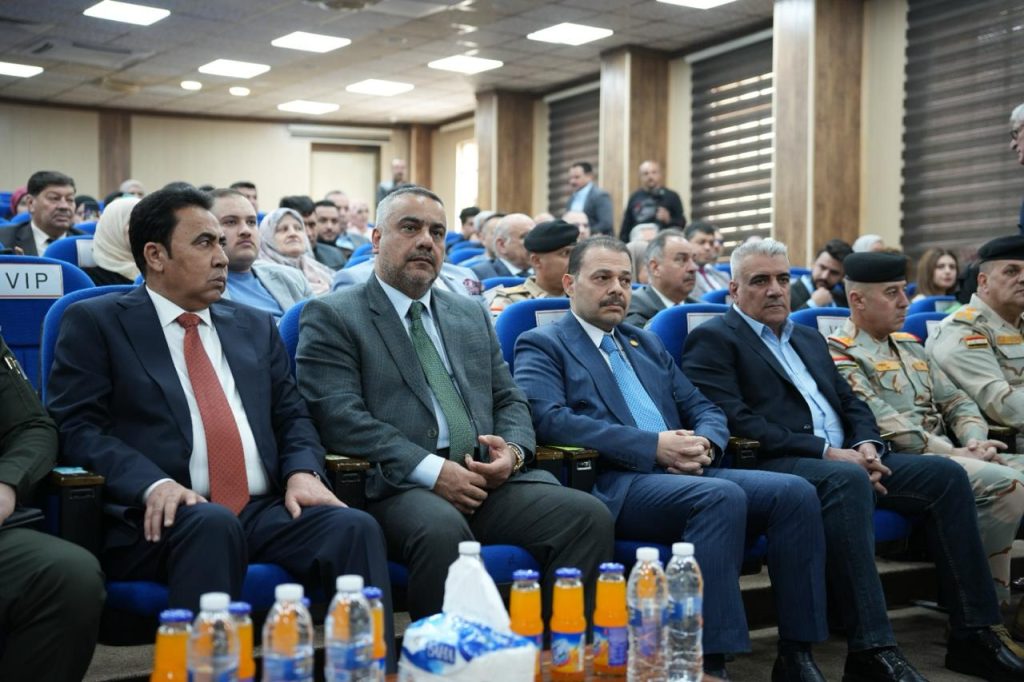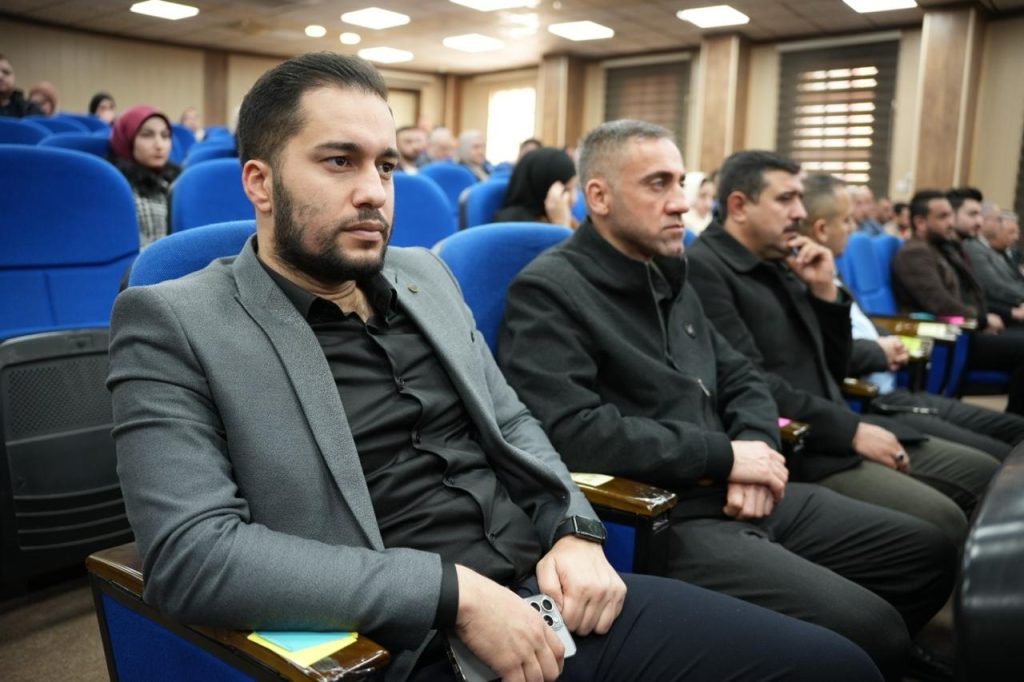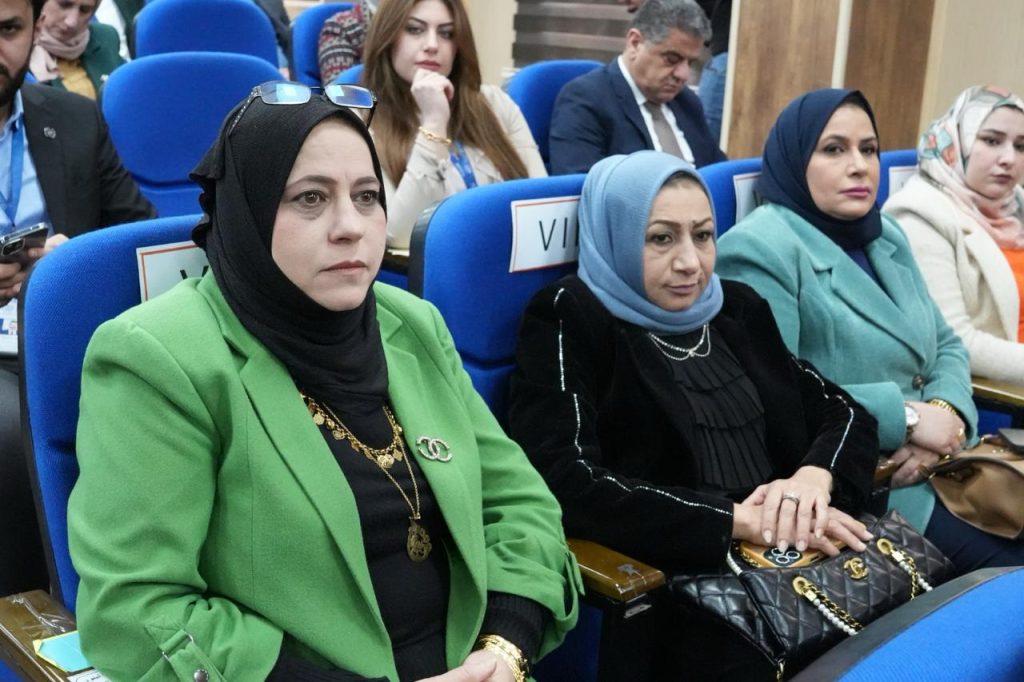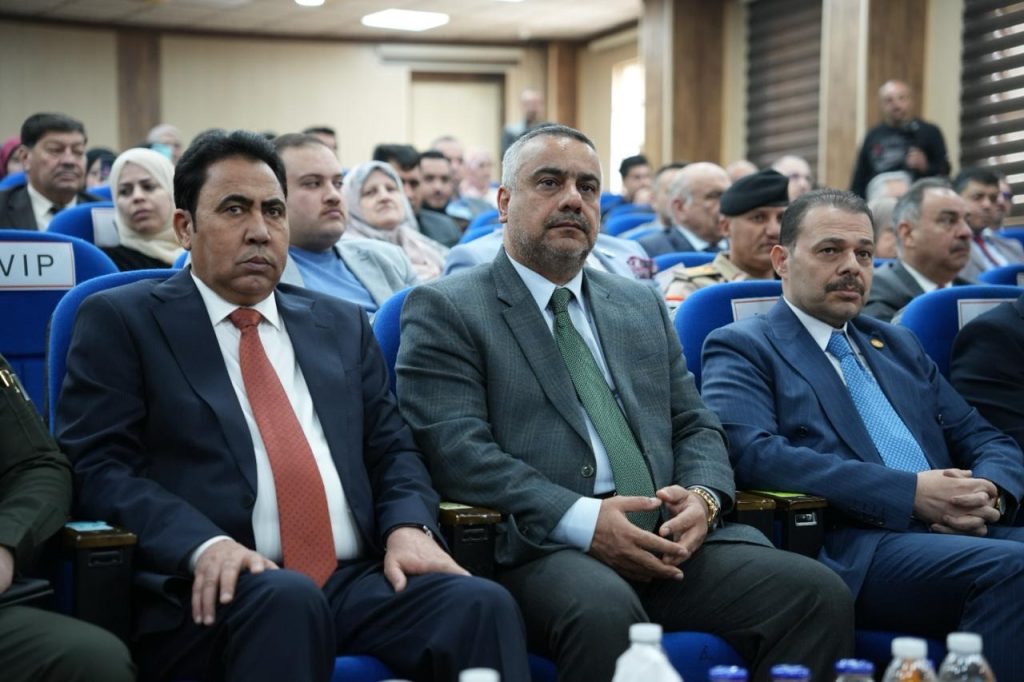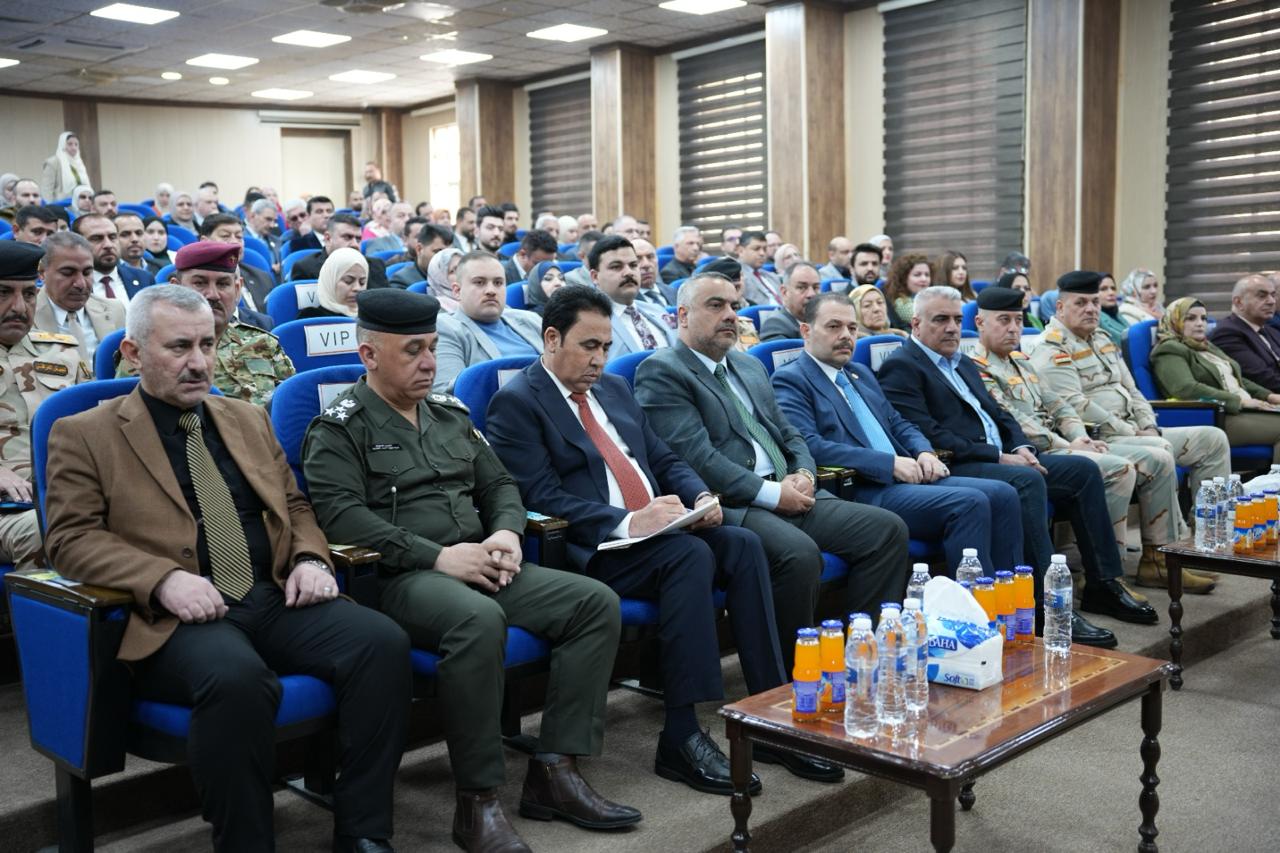” The event was under the patronage of Dr. Osama Al-Mashhadani, the president of Nineveh University, in partnership with the Directorate of Immigration and Displaced Persons, the Nineveh Volunteer Team, and the International Organization for Migration (IOM).
On Monday, February 12, 2024, Nineveh University conducted the seminar, which was attended by Mr. Abdulqadir Al-Dakhil, the Governor of Nineveh, Judge Raed Al-Musleh, the President of Mosul University, Dr. Qusay Kamal Al-Din Al-Ahmedi, Brigadier General Abdullah Ramadan Al-Jubouri, the Ninawa Operations Commander, and representatives from the Nineveh Police Chief, Intelligence Director, Human Rights Director at the Directorate of Immigration and Displaced Persons, Sheikh Rami Al-Abadi, the Director of the Counter-Terrorism and Extremism Department, and Ghasan Al-Sanjari, the Security Director of Nineveh Universities and Institutes, along with representatives from international organizations, religious figures, tribal leaders, and university professors and students.
The seminar began with speeches from the Governor of Nineveh, the President of the Appeals Court, the President of Nineveh University, the Director of Immigration and Displaced Persons, and a representative from the International Organization for Migration. They emphasized the importance of respecting and accepting others, promoting peaceful coexistence among all citizens, and the need for concerted efforts to build peace and curb the rise of violent extremism by instilling proper values.
The seminar, chaired by the Dean of the College of Medicine, Dr. Mu’min Janid Al-Duboni, included eight lectures by specialized professors. These lectures addressed the definition of violent extremism in its various forms and discussed countermeasures and treatments from psychological, intellectual, social, economic, legal, and legislative perspectives. The presentations concluded with an open discussion and responses to the audience’s questions.
The seminar concluded with several recommendations, including the continuation of the volunteer team’s work, activation of the role of universities and educational institutions through awareness and educational programs, engagement of religious figures, and ongoing rehabilitation programs for displaced families. Additionally, the recommendations included holding continuous seminars and workshops to mitigate this dangerous phenomenon threatening the security and peace of society, expressing hopes for all members of the community to live in peace in our beloved country.
